- All Quiet on the Western Front (1930)
- Schindler's List (1993)
- Lawrence of Arabia (1962)
- The Killing Fields (1984)
- The Bridge on the River Kwai (1957)
- Platoon (1986)
- Casablanca (1942)
- The Last of the Mohicans (1992)
- Braveheart (1995)
- Apocalypse Now (1979)
- Rambo: First Blood Part II (1985)
- North and South Duology (1985)
- Hamburger Hill (1987)
- M*A*S*H (1970)
- Cromwell (1970)
- The Great Escape (1963)
- The Train (1964)
- Salvador (1986)
- Predator (1987)
- The Birth of a Nation (1915)
- Glory (1989)
- The One That Got Away (1957)
- That Hamilton Woman (1941)
- Saving Private Ryan (1998)
- Empire of the Sun (1987)
- Lion of the Desert (1980)
- The Blue Max (1966)
- Das Boot (1981)
- Memphis Belle (1990)
- El Cid (1961)
- Paths of Glory (1957)
- Heaven Knows, Mr. Allison (1957)
- Gone with the Wind (1939)
- The Enemy Below (1957)
- Tora! Tora! Tora! (1970)
- Andersonville (1996)
- First Blood (1982)
- The Tuskegee Airmen (1995)
- Letyat zhuravli (1957)
- The Steel Helmet (1951)
- All Quiet on the Western Front (1979)
- The Dirty Dozen (1967)
- Southern Comfort (1981)
- Triumph of the Spirit (1989)
- Victory (1981)
- Ulzana's Raid (1972)
- Star Wars Trilogy (1977)
- MacArthur (1977)
- Son of the Morning Star (1991)
- Patton Duology (1970)
- Where Eagles Dare (1968)
- Clear and Present Danger (1994)
- Soldaat van Oranje (1977)
- Casualties of War (1989)
- Von Richthofen and Brown (1971)
- The Big Red One (1980)
- Uncommon Valor (1983)
- Run Silent, Run Deep (1958)
- Man in the Middle (1964)
- Von Ryan's Express (1965)
- The Hunters (1958)
- Red Dawn (1984)
- The Purple Plain (1954)
- Sniper (1993)
- Hell's Angels (1930)
- Carve Her Name with Pride (1958)
- The War Lover (1962)
- Go Tell the Spartans (1978)
- A Bridge Too Far (1977)
- Hell Is for Heroes (1962)
 The cinematography is stunning, even by 1920's standards. So many emotions are felt for the characters. It's
understandable as to why the Nazis wanted to burn the book because of its defeating message that war is useless
and trivially pointless. All Quiet on the Western Front carries so much relevance, no matter at what period
of time it's seen in.
The cinematography is stunning, even by 1920's standards. So many emotions are felt for the characters. It's
understandable as to why the Nazis wanted to burn the book because of its defeating message that war is useless
and trivially pointless. All Quiet on the Western Front carries so much relevance, no matter at what period
of time it's seen in.
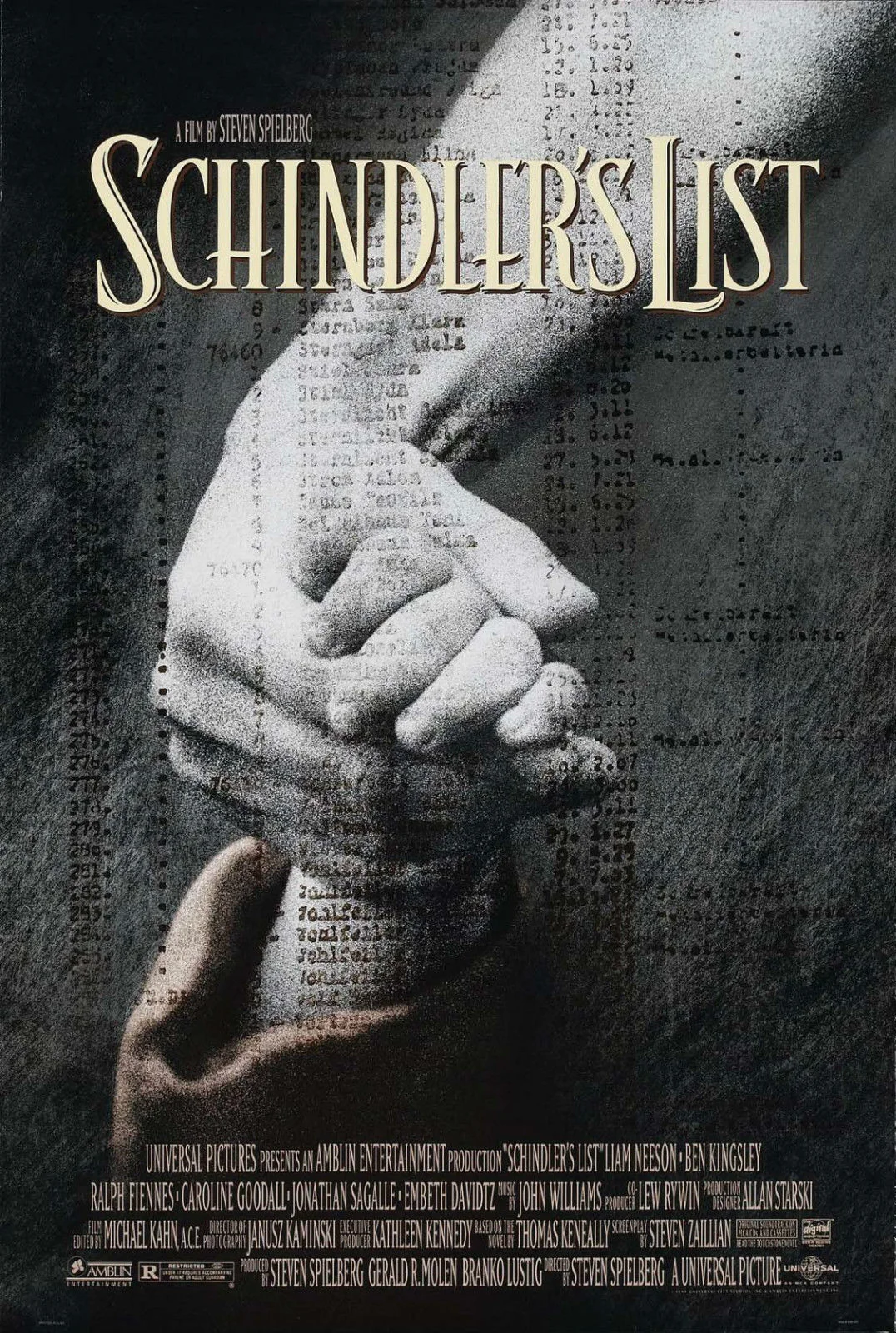 This is the best picture of the decade. It's what I see in books about the Holocaust: Nazi brutality in black and
white. Schindler's List is the stark truth of what happened in German-occupied Europe from 1933 to 1945.
The focus is on Oskar Schindler and his fraudulent business in order to save over 1,200 Jews through his
dealings with the Nazis.
This is the best picture of the decade. It's what I see in books about the Holocaust: Nazi brutality in black and
white. Schindler's List is the stark truth of what happened in German-occupied Europe from 1933 to 1945.
The focus is on Oskar Schindler and his fraudulent business in order to save over 1,200 Jews through his
dealings with the Nazis.
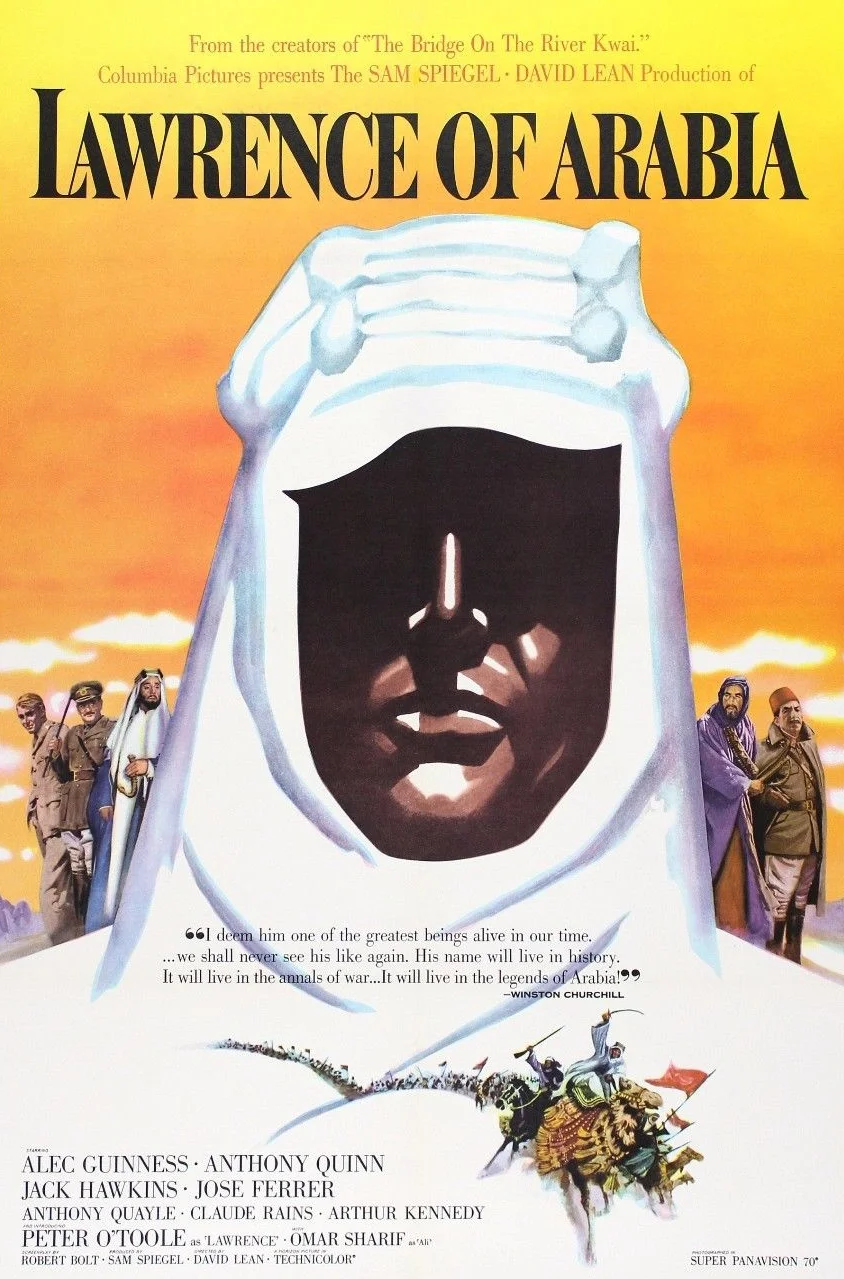 A magnificently made masterpiece, it's David Lean's magnum opus. One of the most remarkable jobs he did with his
characters is not only to make them larger than life but also mysterious in terms of their ambitions and desires.
Thanks to Freddie Young's spellbinding cinematography, it's impossible to deny the power of the desert that
Lawrence of Arabia brings to the screen.
A magnificently made masterpiece, it's David Lean's magnum opus. One of the most remarkable jobs he did with his
characters is not only to make them larger than life but also mysterious in terms of their ambitions and desires.
Thanks to Freddie Young's spellbinding cinematography, it's impossible to deny the power of the desert that
Lawrence of Arabia brings to the screen.
 Dith Pran, the subject of the film, was the first to coin the term "killing fields" to describe the Cambodian
genocide. Sydney Schanberg received the Pulitzer Prize for his wartime reporting there. A first-time
nonprofessional actor, Dr. Haing S. Ngor lived through the experience. Therefore, The Killing Fields
is a powerful film of what it's like to be in a war zone.
Dith Pran, the subject of the film, was the first to coin the term "killing fields" to describe the Cambodian
genocide. Sydney Schanberg received the Pulitzer Prize for his wartime reporting there. A first-time
nonprofessional actor, Dr. Haing S. Ngor lived through the experience. Therefore, The Killing Fields
is a powerful film of what it's like to be in a war zone.
 "Madness. Madness!" The exclamation at the end says it all about The Bridge on the River Kwai, a thrilling
WWII picture with William Holden and Alec Guinness at their finest. Against them is the massive bridge that
overshadows everything and therefore must be brought down.
"Madness. Madness!" The exclamation at the end says it all about The Bridge on the River Kwai, a thrilling
WWII picture with William Holden and Alec Guinness at their finest. Against them is the massive bridge that
overshadows everything and therefore must be brought down.
 Platoon is an outstanding Vietnam War picture, depicting the realities of infantry combat. The performances
by the ensemble cast are brilliantly rendered, but it's Tom Berenger and Willem Dafoe who take the film to another
level that makes the whole thing a tragedy. The most thrilling, impactful scene is Elias' death run.
Platoon is an outstanding Vietnam War picture, depicting the realities of infantry combat. The performances
by the ensemble cast are brilliantly rendered, but it's Tom Berenger and Willem Dafoe who take the film to another
level that makes the whole thing a tragedy. The most thrilling, impactful scene is Elias' death run.
 Casablanca is a bona fide film noir picture, but a lot of people, including critics, still don't get
this. Those who dismiss its label have no idea of what they're talking about. This one has it all, and it's just
perfect, perfect, perfect every step of the way. Humphrey Bogart, Ingrid Bergman, Claude Rains, and Paul Henreid
will always have a place in cinema history. Movies come and go, but there's only one Casablanca.
Casablanca is a bona fide film noir picture, but a lot of people, including critics, still don't get
this. Those who dismiss its label have no idea of what they're talking about. This one has it all, and it's just
perfect, perfect, perfect every step of the way. Humphrey Bogart, Ingrid Bergman, Claude Rains, and Paul Henreid
will always have a place in cinema history. Movies come and go, but there's only one Casablanca.
 Full of action and war, The Last of the Mohicans is a unique masterpiece with a love story to boot.
Although it's the best Daniel Day-Lewis movie, the best Michael Mann movie, the best American Indian movie, and
the best Colonial movie, nothing is more impressive than Wes Studi's performance as Magua. It's so good that
he was sadly robbed of an Oscar. Of course, the title says it all.
Full of action and war, The Last of the Mohicans is a unique masterpiece with a love story to boot.
Although it's the best Daniel Day-Lewis movie, the best Michael Mann movie, the best American Indian movie, and
the best Colonial movie, nothing is more impressive than Wes Studi's performance as Magua. It's so good that
he was sadly robbed of an Oscar. Of course, the title says it all.
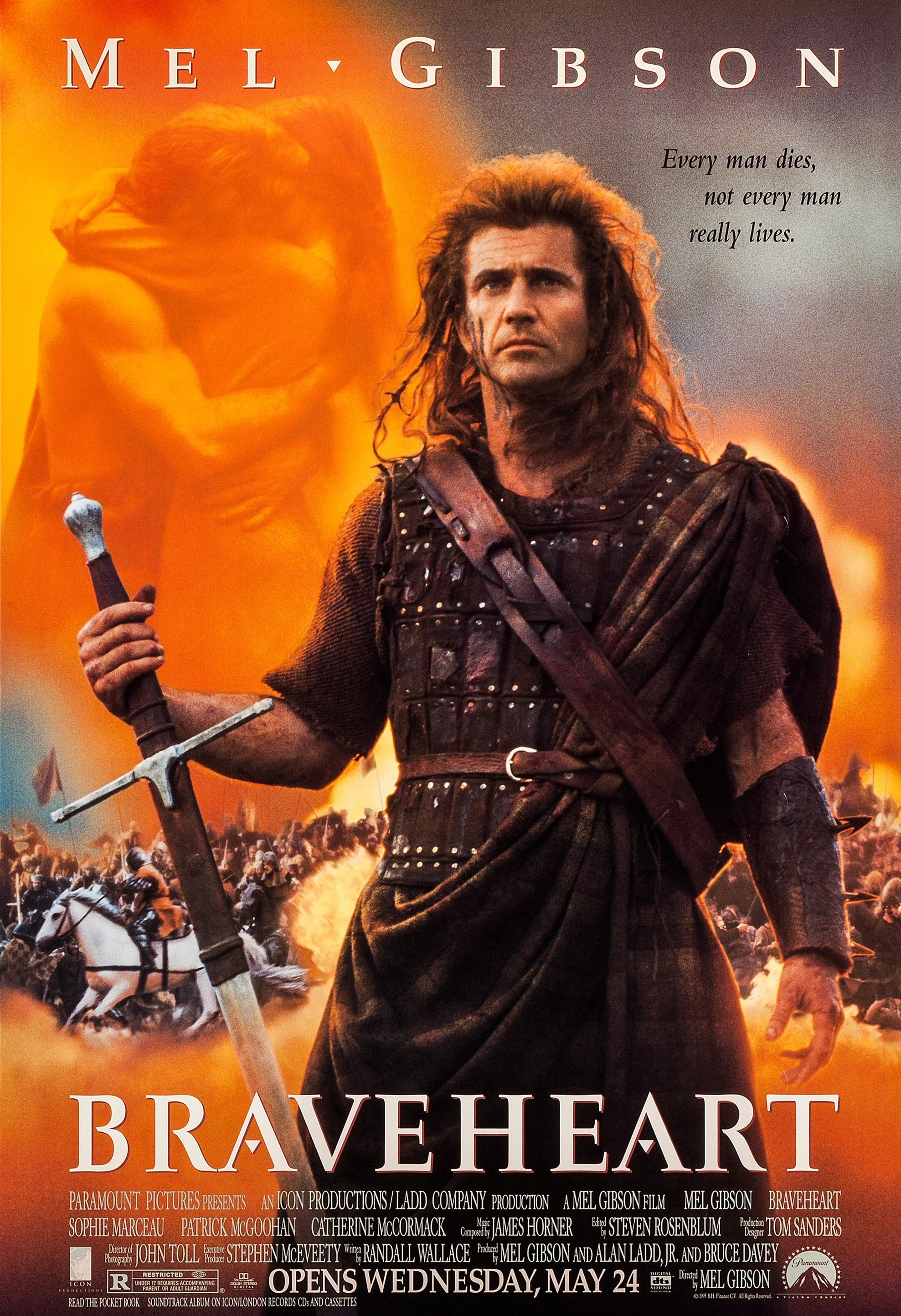 A surprise Oscar winner for Best Picture of 1995, Braveheart is the last great epic war motion picture.
Characters, big, small, clean, dirty, and nameless, all play a large role in scene after scene with so many of
them memorable. Passion is easily felt throughout the wonderful storytelling with a strong script and some of
the most brutal medieval battle scenes ever filmed.
A surprise Oscar winner for Best Picture of 1995, Braveheart is the last great epic war motion picture.
Characters, big, small, clean, dirty, and nameless, all play a large role in scene after scene with so many of
them memorable. Passion is easily felt throughout the wonderful storytelling with a strong script and some of
the most brutal medieval battle scenes ever filmed.
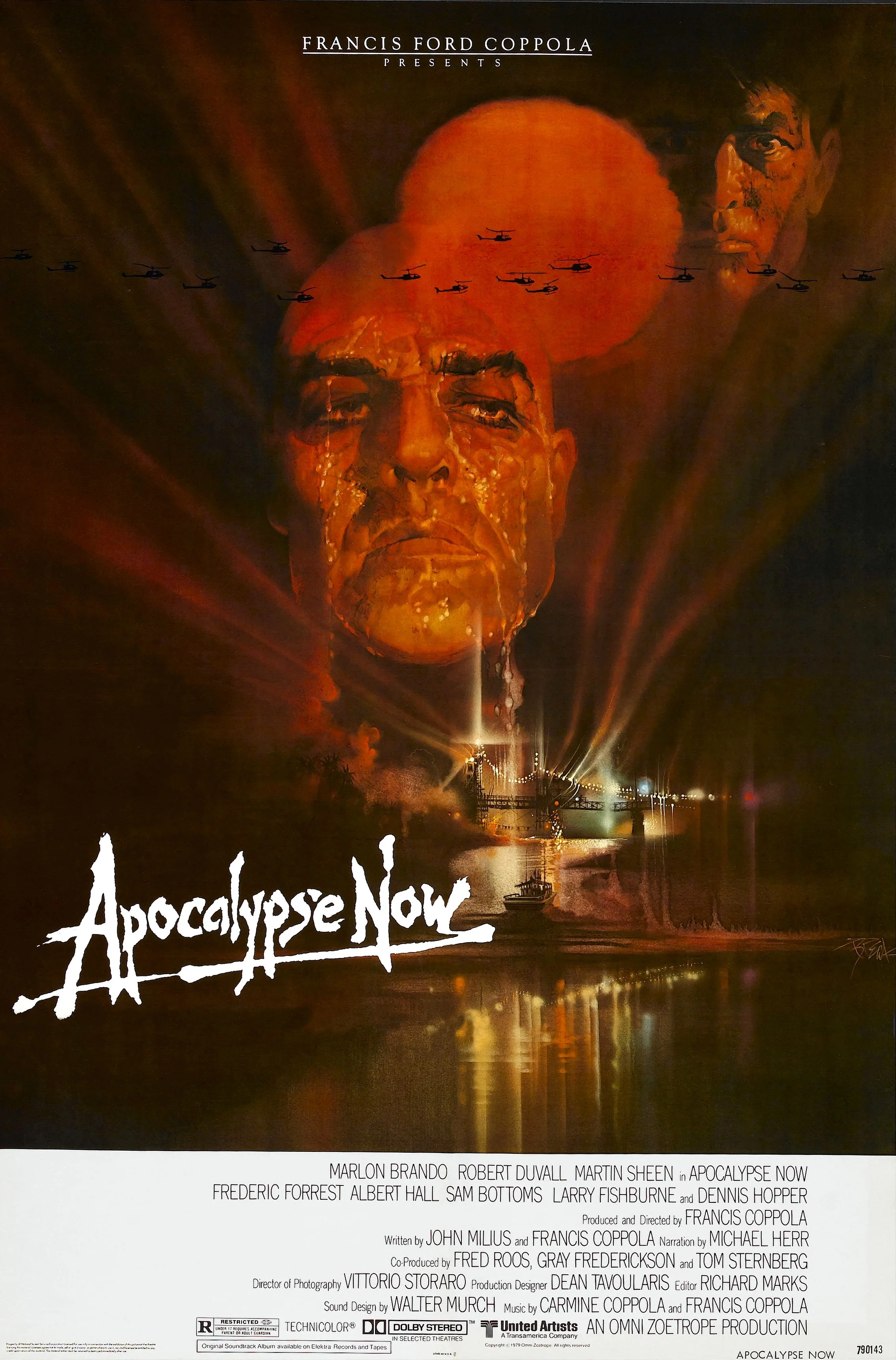 Full of iconic scenes and lines, Apocalypse Now is among the best of the decade as it tops madness with
more madness. That's what the movie is all about: the exploration of insanity in the journey toward the heart
of darkness. Making a case for the deterioration of Marlon Brando's mind may not be far-fetched, either.
Full of iconic scenes and lines, Apocalypse Now is among the best of the decade as it tops madness with
more madness. That's what the movie is all about: the exploration of insanity in the journey toward the heart
of darkness. Making a case for the deterioration of Marlon Brando's mind may not be far-fetched, either.
 "To survive a war, you gotta become war." So it goes in Rambo: First Blood Part II. Sylvester Stallone
has never been more thrilling as he was in this film. It's the role that made him a worldwide icon. My favorite
line of the movie is on the definition of expendable: "It's like someone invites you to a party and you don't
show up. It doesn't really matter."
"To survive a war, you gotta become war." So it goes in Rambo: First Blood Part II. Sylvester Stallone
has never been more thrilling as he was in this film. It's the role that made him a worldwide icon. My favorite
line of the movie is on the definition of expendable: "It's like someone invites you to a party and you don't
show up. It doesn't really matter."
 Through the love stories and differences of philosophies, there's so much drama that it's hard not to be
absorbed by the subplots while there's a display of many different, attractive-looking costumes. It's a
reflection of the show's quality and high production value, a bona fide masterpiece of Civil War drama. In total,
8,700 pieces of wardrobe were presented, and the lead actresses each wore between 28 and 35 different costumes.
However, skip the third book as it's a massive disappointment.
Through the love stories and differences of philosophies, there's so much drama that it's hard not to be
absorbed by the subplots while there's a display of many different, attractive-looking costumes. It's a
reflection of the show's quality and high production value, a bona fide masterpiece of Civil War drama. In total,
8,700 pieces of wardrobe were presented, and the lead actresses each wore between 28 and 35 different costumes.
However, skip the third book as it's a massive disappointment.
 Many Vietnam veterans swear by Hamburger Hill as the most realistic picture of what it's like to fight
in the Vietnam War. This one is quite brutal and holds nothing back including Braveheart-style injuries,
fratricide, FNG mistakes, cowardice, chickenshit duties, disease, mud, enemy radio pleas, resentment for the AOs,
camaraderie, racial tensions, abandonment by the loved ones back home, and the yearning of getting back to the
States, among others.
Many Vietnam veterans swear by Hamburger Hill as the most realistic picture of what it's like to fight
in the Vietnam War. This one is quite brutal and holds nothing back including Braveheart-style injuries,
fratricide, FNG mistakes, cowardice, chickenshit duties, disease, mud, enemy radio pleas, resentment for the AOs,
camaraderie, racial tensions, abandonment by the loved ones back home, and the yearning of getting back to the
States, among others.
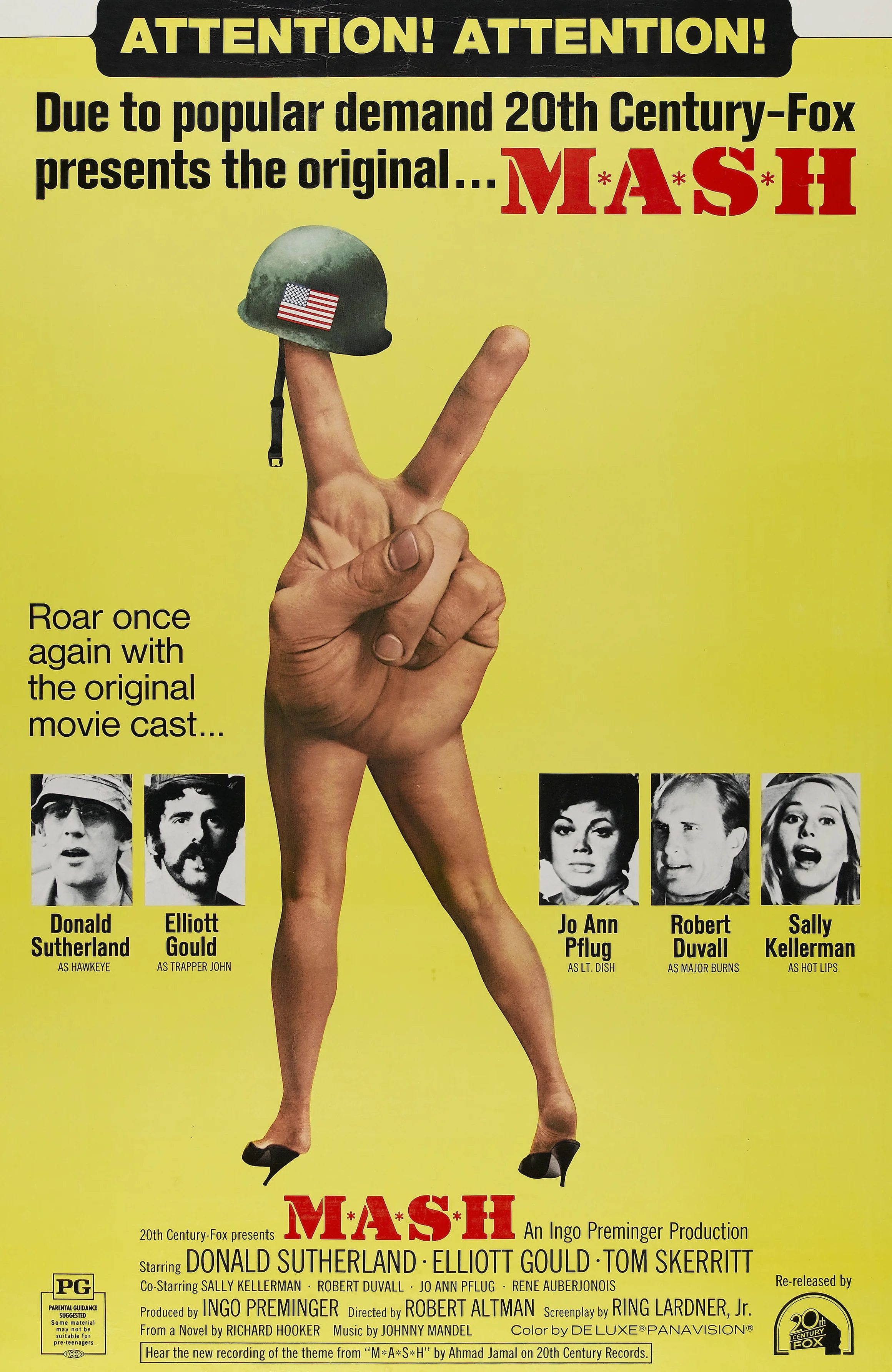 Full of brilliant writing and brilliant acting, M*A*S*H is the best and most intelligent comedy film
ever made. The ensemble cast is unbelievable, playing unforgettable characters. So are the scenes which are so
funny. No wonder why this one spawned a highly successful TV show.
Full of brilliant writing and brilliant acting, M*A*S*H is the best and most intelligent comedy film
ever made. The ensemble cast is unbelievable, playing unforgettable characters. So are the scenes which are so
funny. No wonder why this one spawned a highly successful TV show.
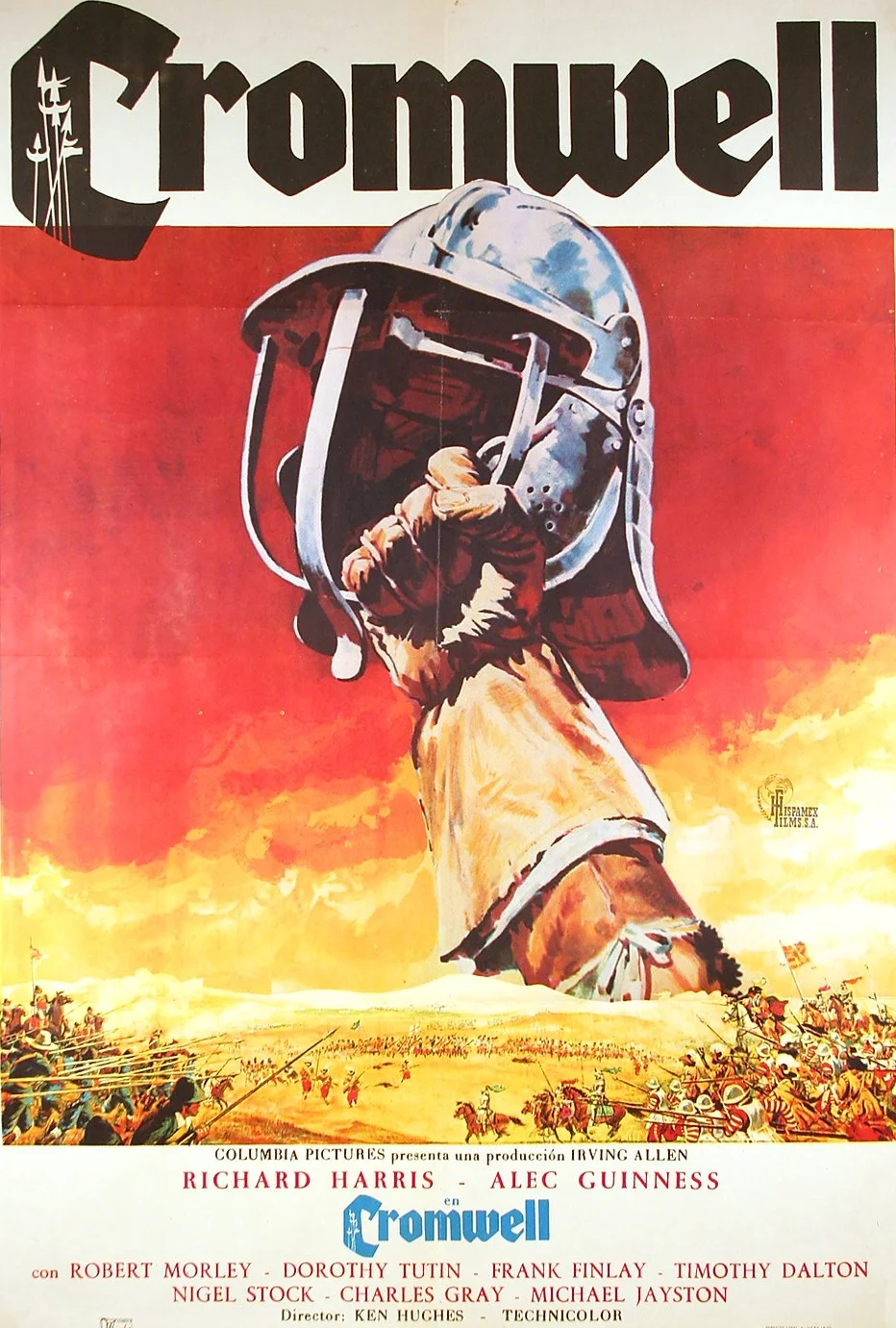 This is British history at its finest with some of the best acting and most terrific battle scenes ever. Because
of the thousands of extras and warlike atmosphere, it's reminiscent of Braveheart minus a love story. The
British production deservingly won an Oscar for Best Costume Design with approximately 4,000 costumes, 16,000
historical props, and thousands of wigs which were ordered from all over Europe.
This is British history at its finest with some of the best acting and most terrific battle scenes ever. Because
of the thousands of extras and warlike atmosphere, it's reminiscent of Braveheart minus a love story. The
British production deservingly won an Oscar for Best Costume Design with approximately 4,000 costumes, 16,000
historical props, and thousands of wigs which were ordered from all over Europe.
 By far one of the most thrilling movies made, The Great Escape...there's nothing like it. Steve McQueen's
performance as Captain Virgil Hilts, aka The Cooler King, cements his status as an international superstar because
of the motorcycle scenes. Who can forget the iconic jump at the end? The chemistry of the all-star cast, the story,
and the dramatic escape are the reasons behind the film's quick pace.
By far one of the most thrilling movies made, The Great Escape...there's nothing like it. Steve McQueen's
performance as Captain Virgil Hilts, aka The Cooler King, cements his status as an international superstar because
of the motorcycle scenes. Who can forget the iconic jump at the end? The chemistry of the all-star cast, the story,
and the dramatic escape are the reasons behind the film's quick pace.
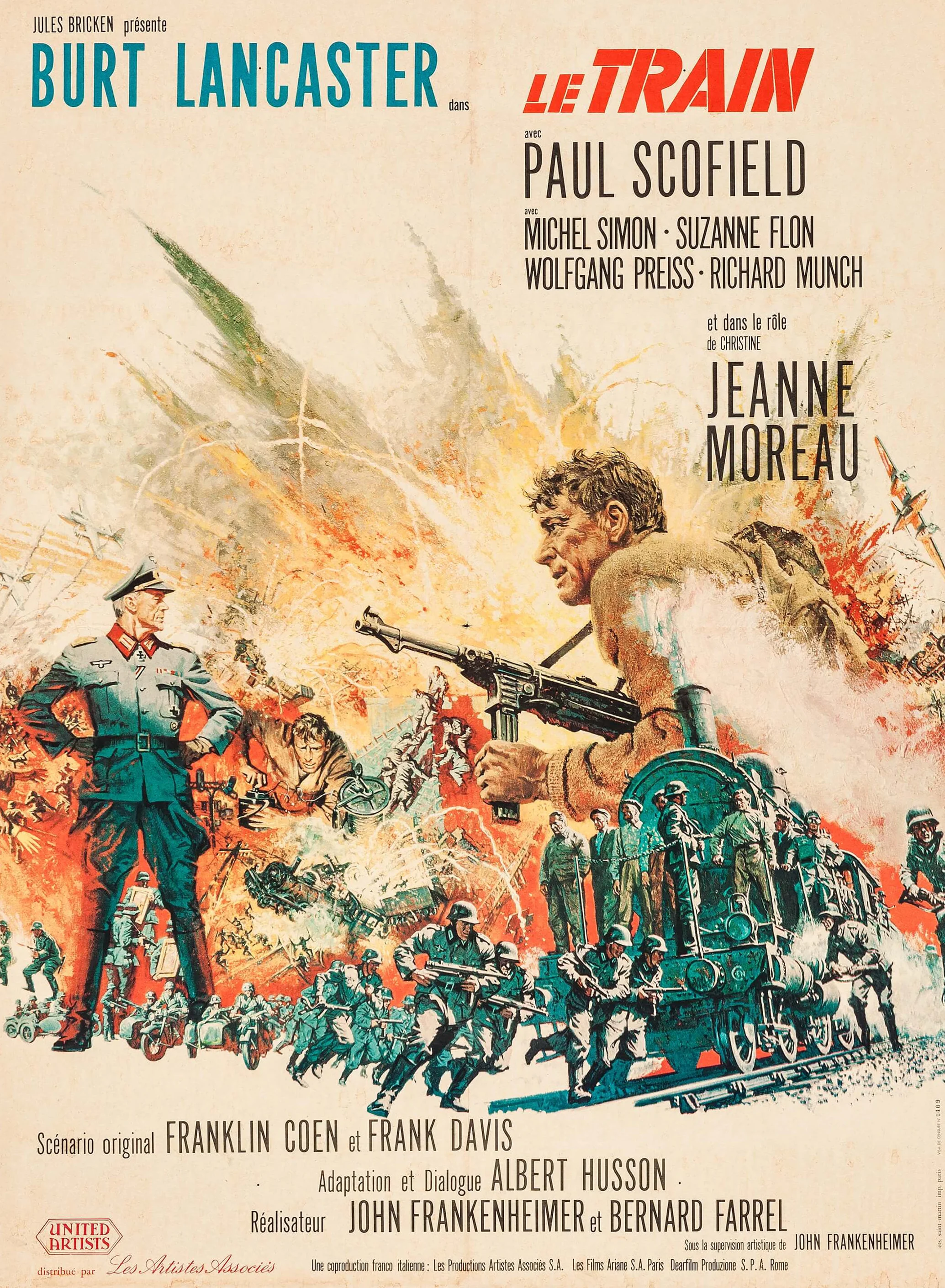 Chalk up The Train as one of the most exciting WWII pictures. Nothing beats the sight of Burt Lancaster in
action. He going down the ladder quickly, jumping off the train while it's in motion, running across the bridge,
and getting through the mountain range with a injured leg are some of the film's highest points. Also, it has
some great aerial shots, especially when the railyard is bombed.
Chalk up The Train as one of the most exciting WWII pictures. Nothing beats the sight of Burt Lancaster in
action. He going down the ladder quickly, jumping off the train while it's in motion, running across the bridge,
and getting through the mountain range with a injured leg are some of the film's highest points. Also, it has
some great aerial shots, especially when the railyard is bombed.
 Salvador is another great, albeit unknown, Oliver Stone picture with a fantastic James Woods performance.
No person in his right mind would go to a war-torn country if he had another choice, but that's what Richard Boyle
did during the early 80's by traveling to El Salvador on the cusp of a civil war, resulting in mass murder
of the populace. Today, El Salvador has one of the highest murder rates in the world.
Salvador is another great, albeit unknown, Oliver Stone picture with a fantastic James Woods performance.
No person in his right mind would go to a war-torn country if he had another choice, but that's what Richard Boyle
did during the early 80's by traveling to El Salvador on the cusp of a civil war, resulting in mass murder
of the populace. Today, El Salvador has one of the highest murder rates in the world.
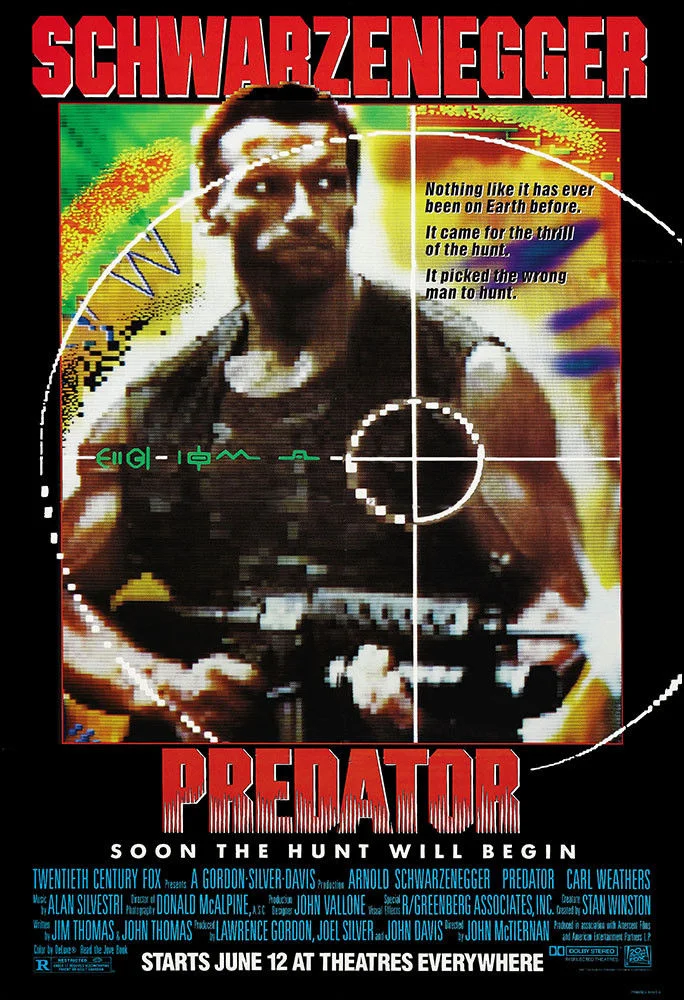 In the vein of And Then There Were None, Predator is the one of the best sci-fi horror pictures of
all time and is a hell of a ride. This is about muscles, guns, and blowing up things. Arnold Schwarzenegger is
unforgettable as Major Dutch. So are his lines: "Get to da choppa!!!" and "If it bleeds, we can kill it."
In the vein of And Then There Were None, Predator is the one of the best sci-fi horror pictures of
all time and is a hell of a ride. This is about muscles, guns, and blowing up things. Arnold Schwarzenegger is
unforgettable as Major Dutch. So are his lines: "Get to da choppa!!!" and "If it bleeds, we can kill it."
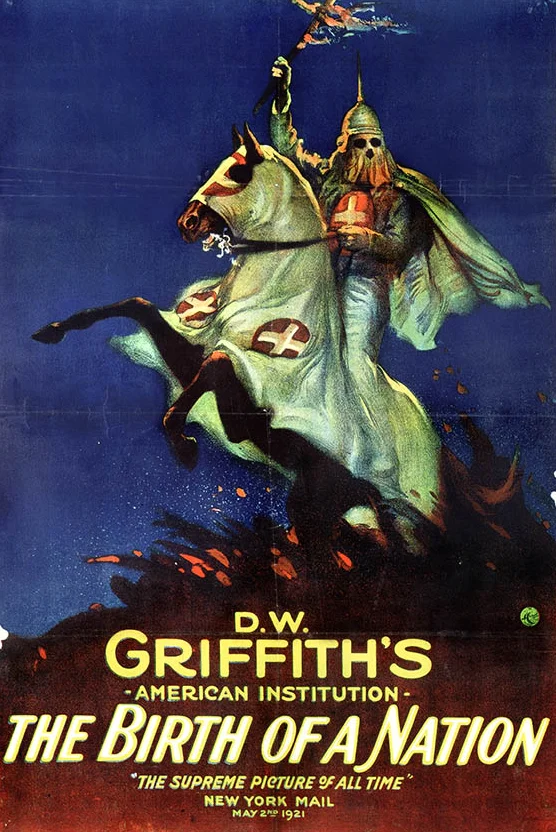 After seeing The Birth of a Nation, Woodrow Wilson famously said, "It is like writing history with
lightning, and my only regret is that it is all so terribly true." Whether he really did or not is besides the
point. The film's place in the annals of cinema is undeniable. It forever changed how movies were made. Hence,
D.W. Griffith is the father of film.
After seeing The Birth of a Nation, Woodrow Wilson famously said, "It is like writing history with
lightning, and my only regret is that it is all so terribly true." Whether he really did or not is besides the
point. The film's place in the annals of cinema is undeniable. It forever changed how movies were made. Hence,
D.W. Griffith is the father of film.
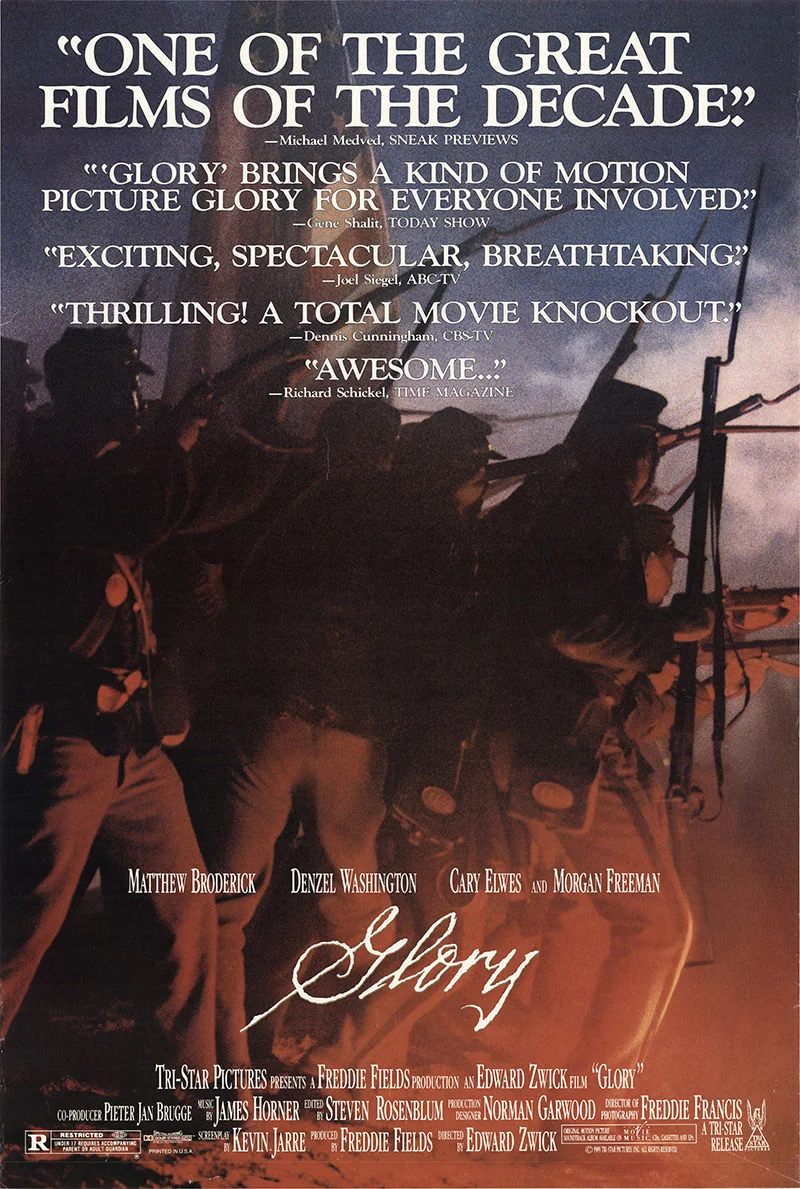 Riveting and moving, Glory is the top film of 1989 and ranks among the very best of the decade. Without
doubt, the most spectacular performance comes from Denzel Washington who clinched the Oscar during the flogging
scene. The 54th's assault on Fort Wagner underscores how dramatic the whole thing is. The night before is
incredible because these men knew they were going to die and felt prepared about it.
Riveting and moving, Glory is the top film of 1989 and ranks among the very best of the decade. Without
doubt, the most spectacular performance comes from Denzel Washington who clinched the Oscar during the flogging
scene. The 54th's assault on Fort Wagner underscores how dramatic the whole thing is. The night before is
incredible because these men knew they were going to die and felt prepared about it.
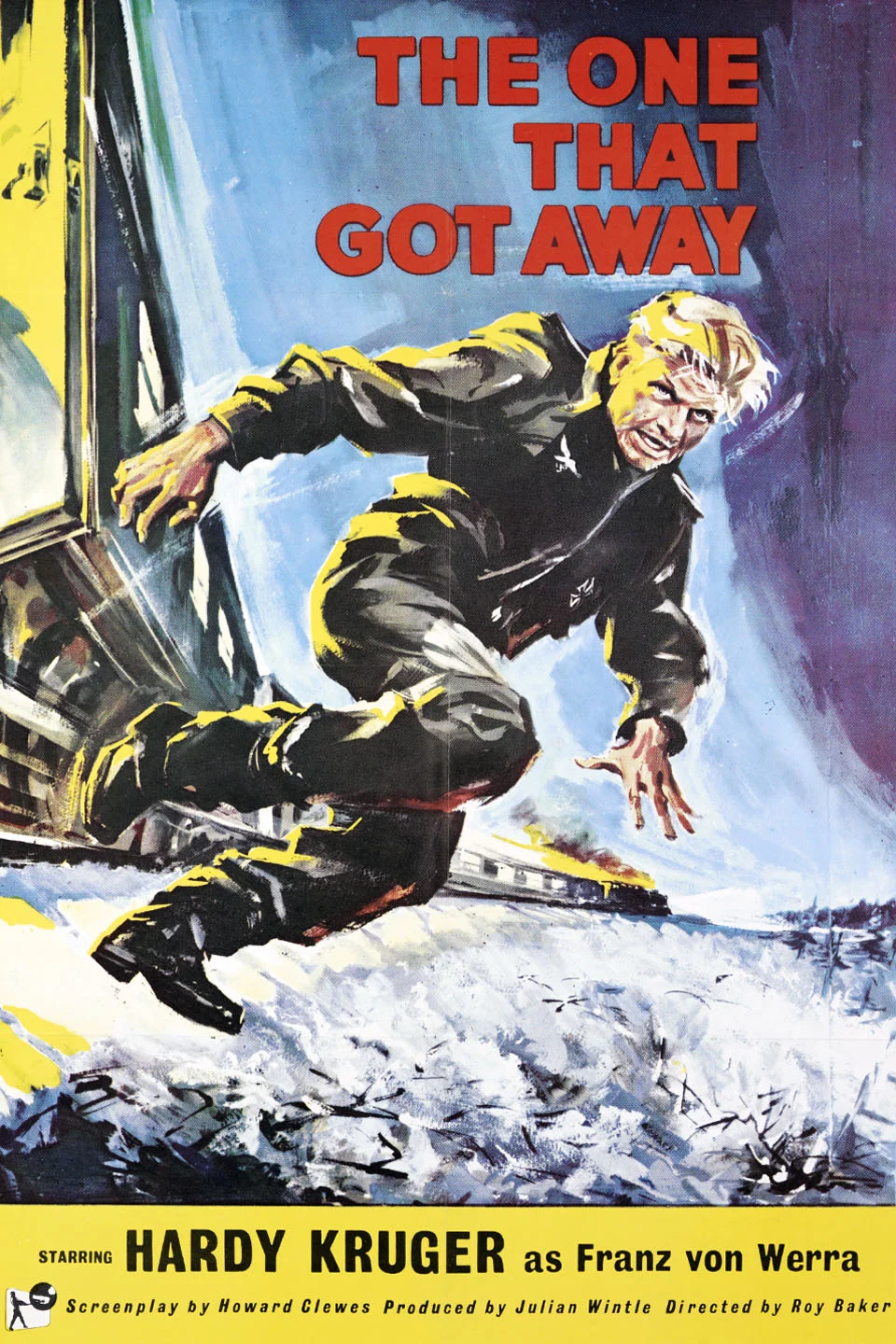 If England has The Great Escape to boast of, then Germany's answer to it is: The One That Got Away.
Surprisingly, the film was made six years earlier. Not only that, it was filmed by Pinewood Studios of Iver Heath,
England. Well, it's a brilliant acting by Hardy Krüger, setting up for a two-hour one-man show. It's easy to root
for him along the way despite being a Nazi. The story is incredible, and most of it did happen.
If England has The Great Escape to boast of, then Germany's answer to it is: The One That Got Away.
Surprisingly, the film was made six years earlier. Not only that, it was filmed by Pinewood Studios of Iver Heath,
England. Well, it's a brilliant acting by Hardy Krüger, setting up for a two-hour one-man show. It's easy to root
for him along the way despite being a Nazi. The story is incredible, and most of it did happen.
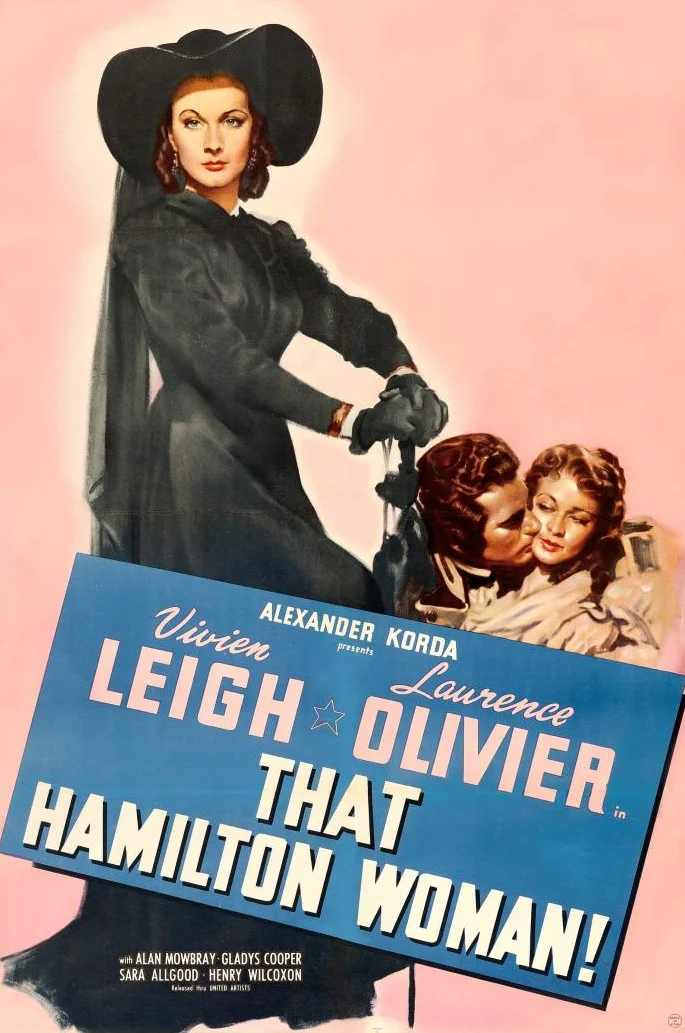 Reportedly, That Hamilton Woman is Winston Churchill's favorite film, having seen it over eighty times.
It's not hard to see why. This is an excellent film that's about overcoming adversity to rouse British (and
possibly American) support to enter WWII and showcases the very best of Laurence Olivier's and Vivien Leigh's
talents in their third and final collaboration.
Reportedly, That Hamilton Woman is Winston Churchill's favorite film, having seen it over eighty times.
It's not hard to see why. This is an excellent film that's about overcoming adversity to rouse British (and
possibly American) support to enter WWII and showcases the very best of Laurence Olivier's and Vivien Leigh's
talents in their third and final collaboration.
 There's no finer example of being in a war than the opening scene when the men are ready to come out of the
Higgins boats during D-Day on the beaches of Normandy, France. It goes without saying Saving Private Ryan
is the most realistic-looking war picture, putting Battle of the Bulge and The Longest Day to shame.
There's no finer example of being in a war than the opening scene when the men are ready to come out of the
Higgins boats during D-Day on the beaches of Normandy, France. It goes without saying Saving Private Ryan
is the most realistic-looking war picture, putting Battle of the Bulge and The Longest Day to shame.
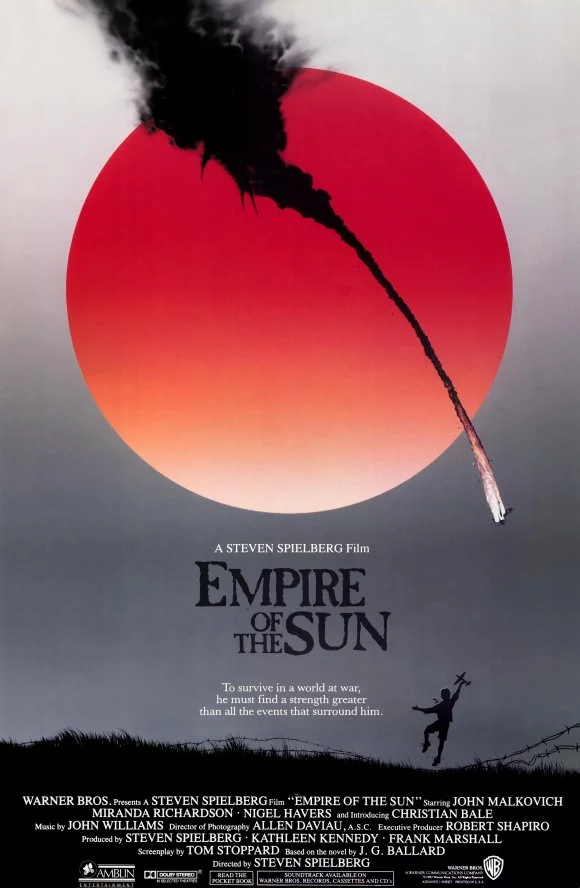 There's a lot of David Lean in Empire of the Sun, thanks to the top-notch cinematography. Christian Bale
gives a performance that's on par with Peter O'Toole of Lawrence of Arabia. There are a lot of
similarities between both films as well. Steven Spielberg is the best director ever because of his ability to
create a masterpiece in any genre.
There's a lot of David Lean in Empire of the Sun, thanks to the top-notch cinematography. Christian Bale
gives a performance that's on par with Peter O'Toole of Lawrence of Arabia. There are a lot of
similarities between both films as well. Steven Spielberg is the best director ever because of his ability to
create a masterpiece in any genre.
 Talk about a powerful film. The producer of Halloween, Moustapha Akkad, had one goal in mind when he set
out to direct an epic in Lion of the Desert which involved thousands of extras, armored vehicles, and
horses: to present the events as they happened with a high level of realism. It was all accomplished right in
the middle of the Libyan desert. Anthony Quinn is every bit as spectacular as Omar Mukhtar.
Talk about a powerful film. The producer of Halloween, Moustapha Akkad, had one goal in mind when he set
out to direct an epic in Lion of the Desert which involved thousands of extras, armored vehicles, and
horses: to present the events as they happened with a high level of realism. It was all accomplished right in
the middle of the Libyan desert. Anthony Quinn is every bit as spectacular as Omar Mukhtar.
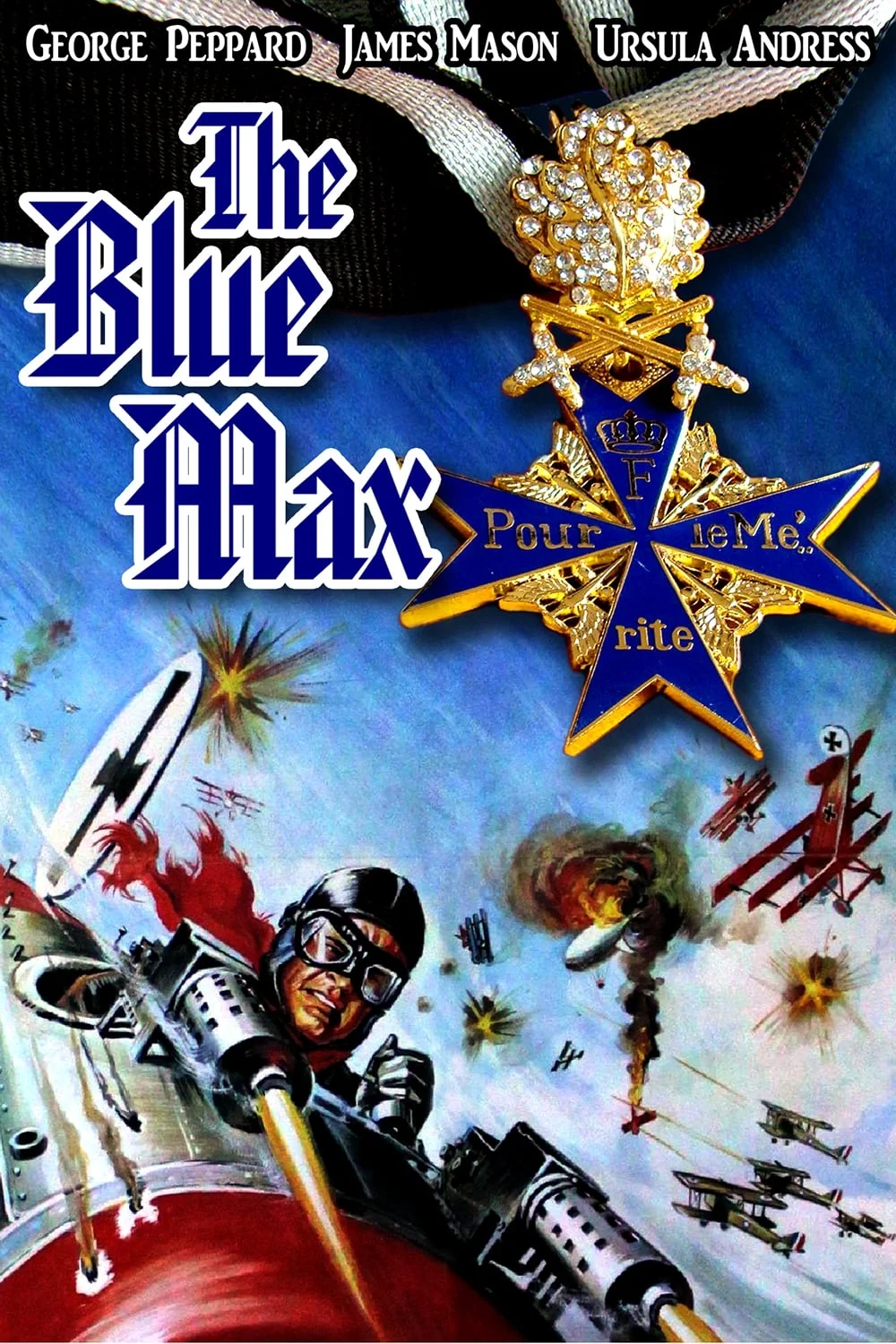 The Blue Max is the Top Gun of World War I films. The incredible performances, the dramatic
storyline, the brilliant cinematography, and the well-constructed dogfighting scenes make it a compelling
film to watch. The ending says it all. Back then, a fighter pilot was called a Flying Ace whenever he recorded at
least five kills, but for this one, the valor has been changed to the Blue Max for twenty kills which has a nice
ring to it.
The Blue Max is the Top Gun of World War I films. The incredible performances, the dramatic
storyline, the brilliant cinematography, and the well-constructed dogfighting scenes make it a compelling
film to watch. The ending says it all. Back then, a fighter pilot was called a Flying Ace whenever he recorded at
least five kills, but for this one, the valor has been changed to the Blue Max for twenty kills which has a nice
ring to it.
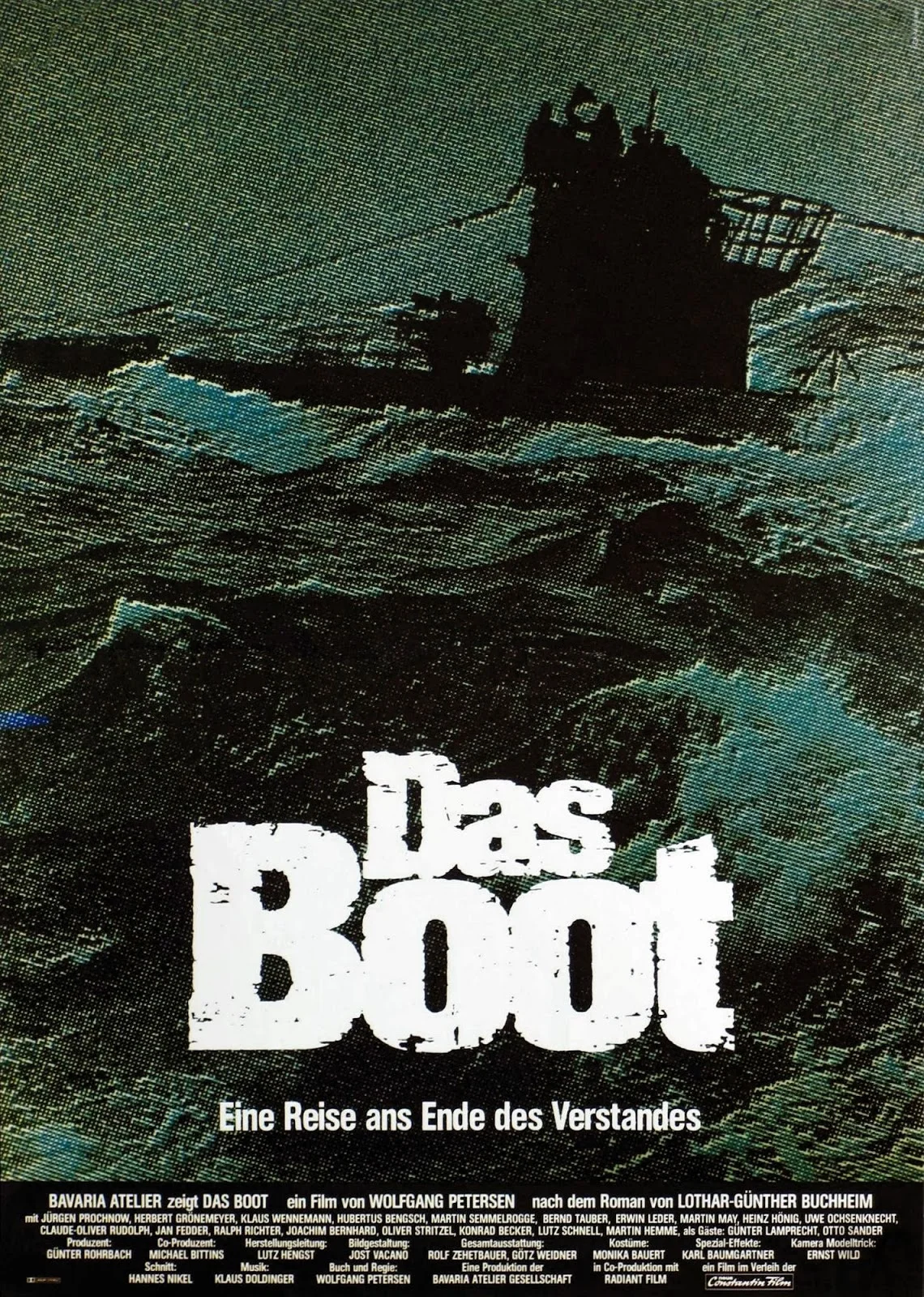 German for The Boat, Das Boot is an intense action-adventure submarine picture that's unlike
anything. This one is about exploring how far a man can go. Also, it's about the reality of survival in naval
warfare, something that Charles Darwin would succintly call: "The survival of the fittest." The ending is
unforgettable as well.
German for The Boat, Das Boot is an intense action-adventure submarine picture that's unlike
anything. This one is about exploring how far a man can go. Also, it's about the reality of survival in naval
warfare, something that Charles Darwin would succintly call: "The survival of the fittest." The ending is
unforgettable as well.
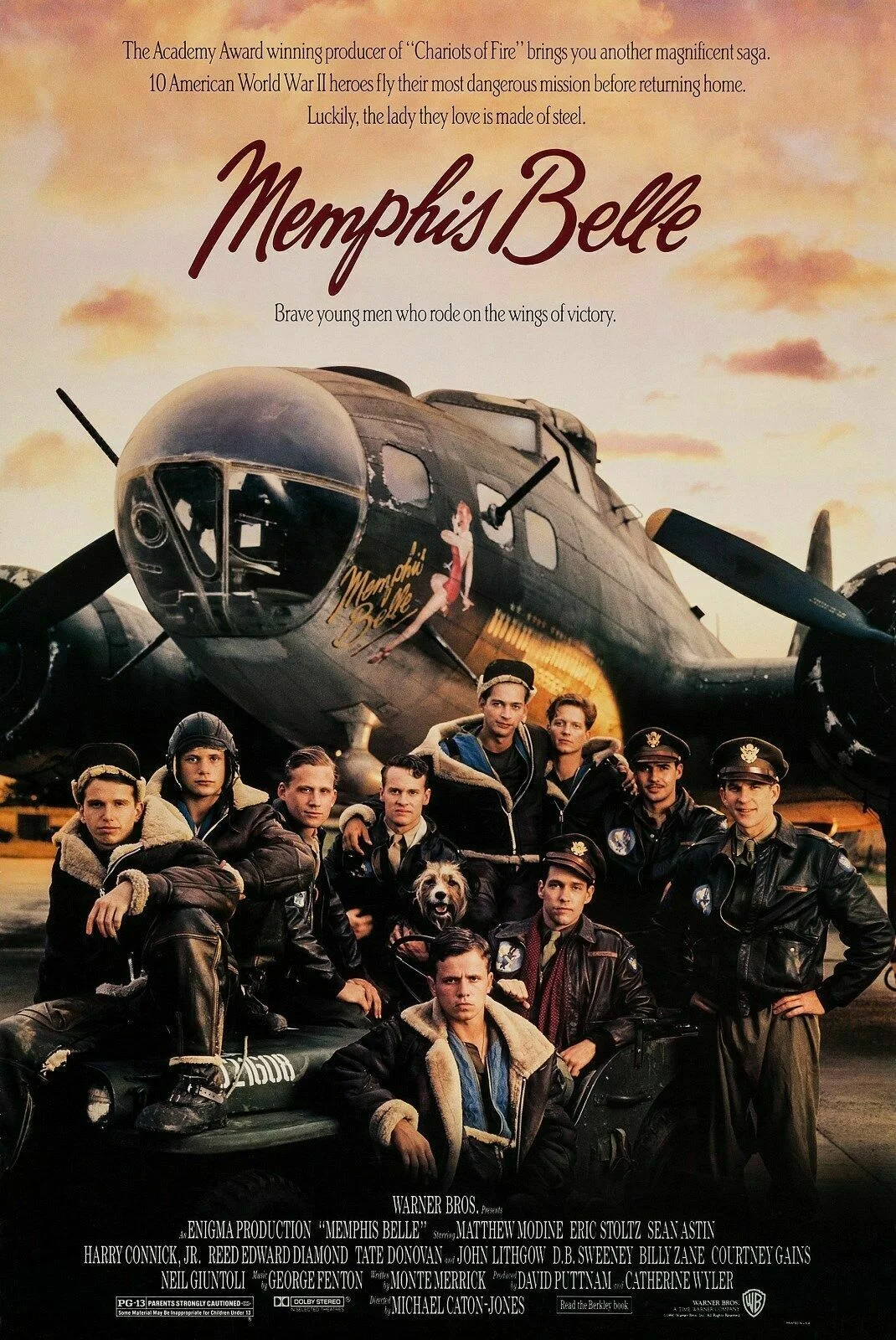 Memphis Belle is excellent which depicts the job that bomber crews went through during World War II.
It's a dramatic show because their lives were at stake to serve their country. There's no glamorization at work;
it's just a set of straightforward facts of how the job was done. I like the star-studded cast, and there's a nice
deal of teamwork. The final hour is very exciting.
Memphis Belle is excellent which depicts the job that bomber crews went through during World War II.
It's a dramatic show because their lives were at stake to serve their country. There's no glamorization at work;
it's just a set of straightforward facts of how the job was done. I like the star-studded cast, and there's a nice
deal of teamwork. The final hour is very exciting.
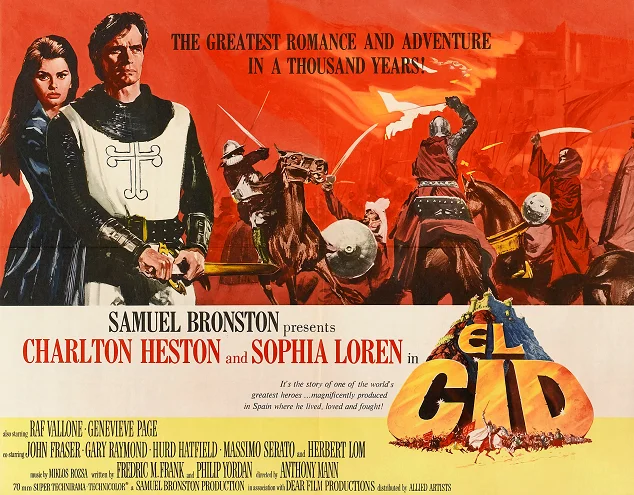 Only Charlton Heston can pull it off, and that's why he's the greatest actor of epic pictures. Shot on location
in Spain with 7,000 extras and 10,000 costumes, El Cid is a lavishly made epic picture about a real life
warrior who was a national hero of Spain during the 11th century.
Only Charlton Heston can pull it off, and that's why he's the greatest actor of epic pictures. Shot on location
in Spain with 7,000 extras and 10,000 costumes, El Cid is a lavishly made epic picture about a real life
warrior who was a national hero of Spain during the 11th century.
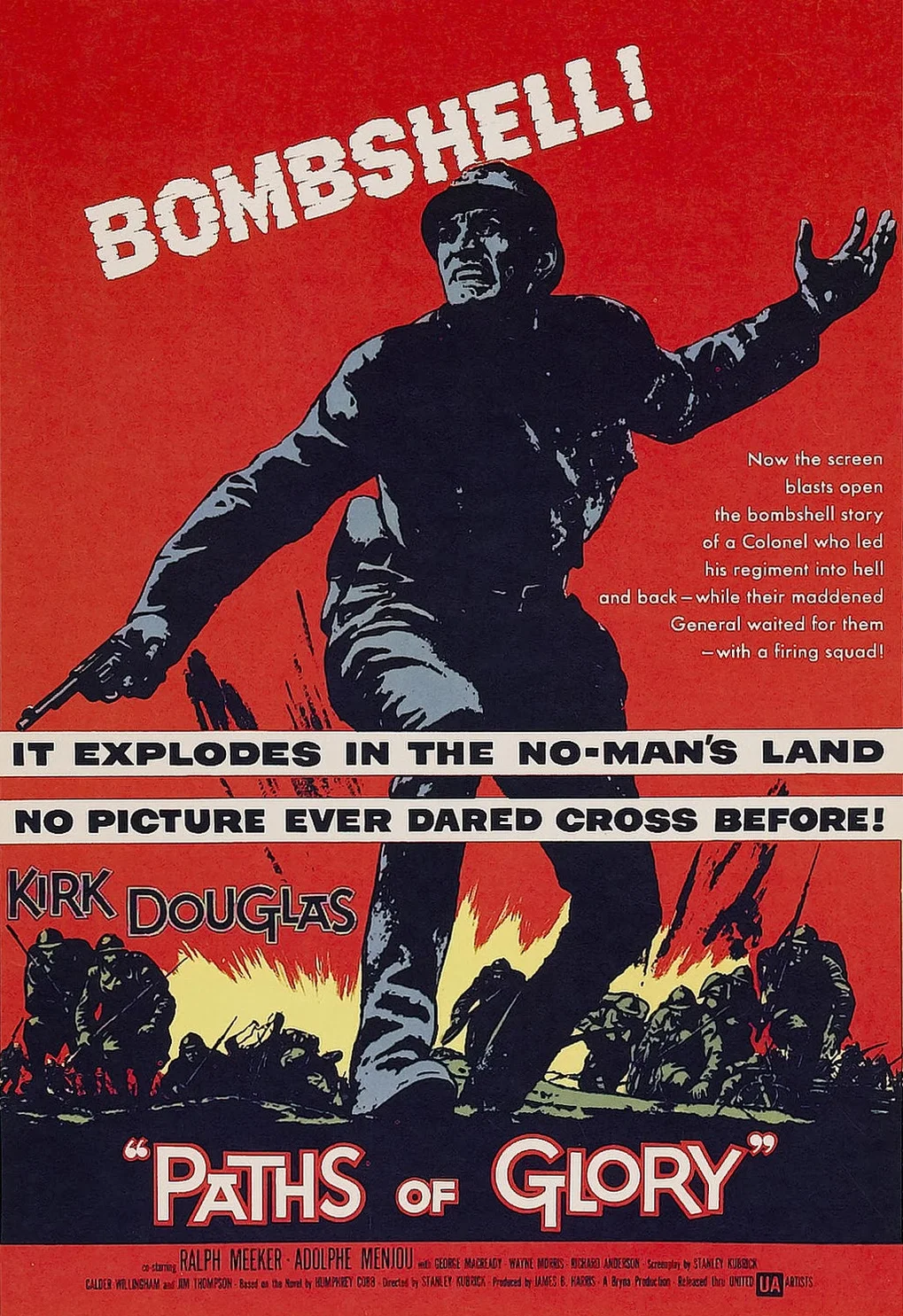 Paths of Glory is a remarkable film for highlighting everything that's wrong with France. The three
reasons why it works well are: Kirk Douglas' performance, the story, and the cinematography. There's a lack
of political correctness through the soldiers' actions, and the outcome is both well-done and anti-Hollywood.
As for the cinematography, there's nothing like the black-and-white image of trenches and stately buildings
and rooms.
Paths of Glory is a remarkable film for highlighting everything that's wrong with France. The three
reasons why it works well are: Kirk Douglas' performance, the story, and the cinematography. There's a lack
of political correctness through the soldiers' actions, and the outcome is both well-done and anti-Hollywood.
As for the cinematography, there's nothing like the black-and-white image of trenches and stately buildings
and rooms.
 Heaven Knows, Mr. Allison is a superb Robinson Crusoe type of picture that features a Marine and a nun
hiding from the Japanese soldiers during WWII. The best scene is when Robert Mitchum, in his camouflaged face,
snuck inside the storeroom of canned victuals but got trapped at the top of the shelf. It's done with high
tension, making his performance highly memorable.
Heaven Knows, Mr. Allison is a superb Robinson Crusoe type of picture that features a Marine and a nun
hiding from the Japanese soldiers during WWII. The best scene is when Robert Mitchum, in his camouflaged face,
snuck inside the storeroom of canned victuals but got trapped at the top of the shelf. It's done with high
tension, making his performance highly memorable.
 As impressive as it can be, Gone with the Wind is a one-of-a-kind picture although it's an extremely
long epic. Doing an excellent job of perpetuating the myths about the Old South which was anything but, it
abounds with excellent performances, a picturesque cinematography, and a sumptuous story.
As impressive as it can be, Gone with the Wind is a one-of-a-kind picture although it's an extremely
long epic. Doing an excellent job of perpetuating the myths about the Old South which was anything but, it
abounds with excellent performances, a picturesque cinematography, and a sumptuous story.
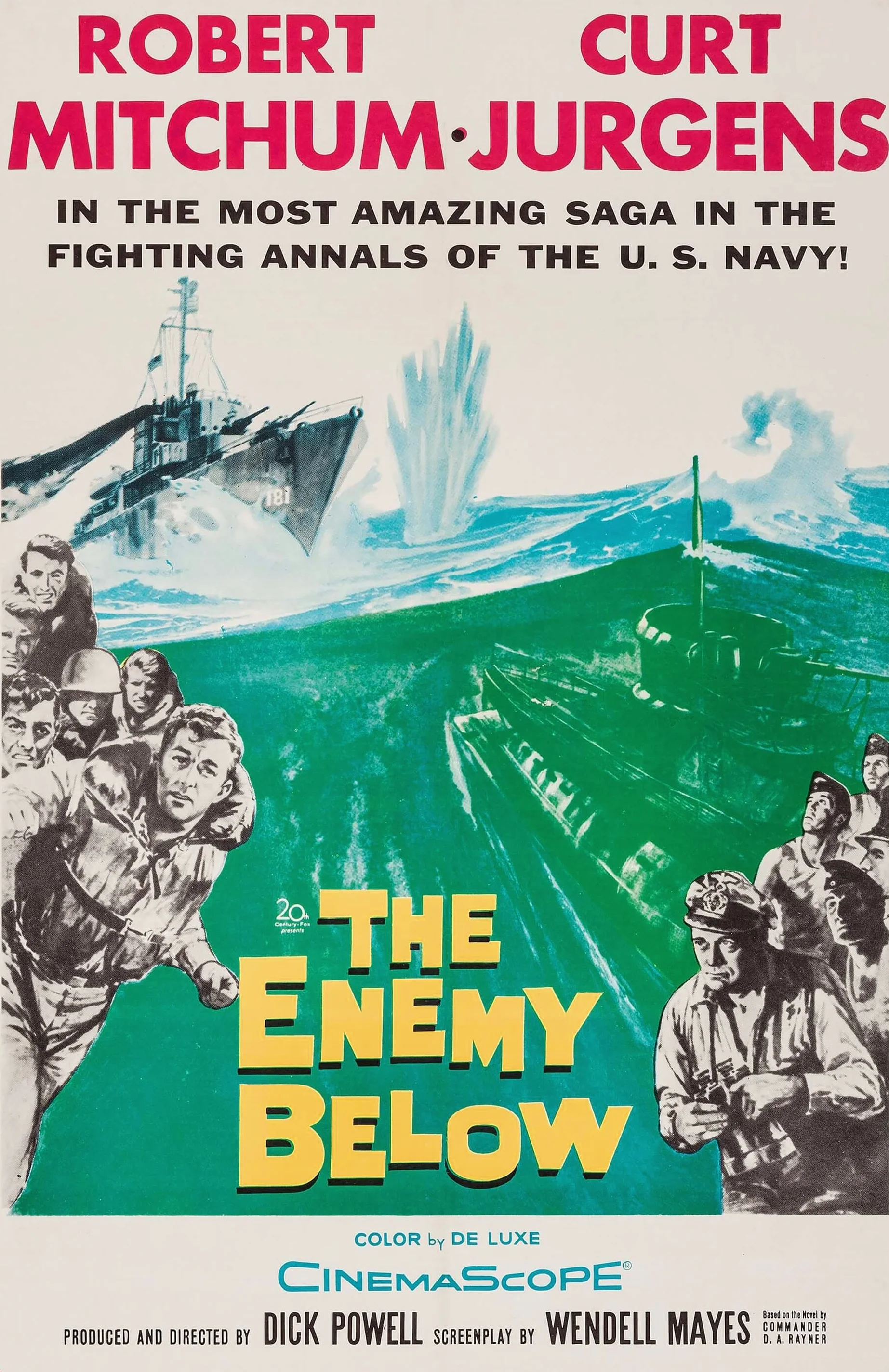 While Das Boot remains the indisputable champ of the submarine genre, The Enemy Below is the
runner-up. Robert Mitchum vs. Curd Jürgens. An American destroyer escort vs. a German U-boat. It's a battle of wits.
The best part is the depth charges exploding underwater over and over. There's no CGI bullshit. That's why the film
won an Oscar for Best Special Effects. Sound is another big part of the action.
While Das Boot remains the indisputable champ of the submarine genre, The Enemy Below is the
runner-up. Robert Mitchum vs. Curd Jürgens. An American destroyer escort vs. a German U-boat. It's a battle of wits.
The best part is the depth charges exploding underwater over and over. There's no CGI bullshit. That's why the film
won an Oscar for Best Special Effects. Sound is another big part of the action.
 The famous line uttered by Admiral Yamamoto: "I fear all we have done is to awaken the sleeping giant and fill
him with a terrible resolve"? Never happened, but it's still cool. Each segment of Tora! Tora! Tora! was
handled by a Japanese director and an American director separately. The aerial scenes of the Japanese fighters
are stunning.
The famous line uttered by Admiral Yamamoto: "I fear all we have done is to awaken the sleeping giant and fill
him with a terrible resolve"? Never happened, but it's still cool. Each segment of Tora! Tora! Tora! was
handled by a Japanese director and an American director separately. The aerial scenes of the Japanese fighters
are stunning.
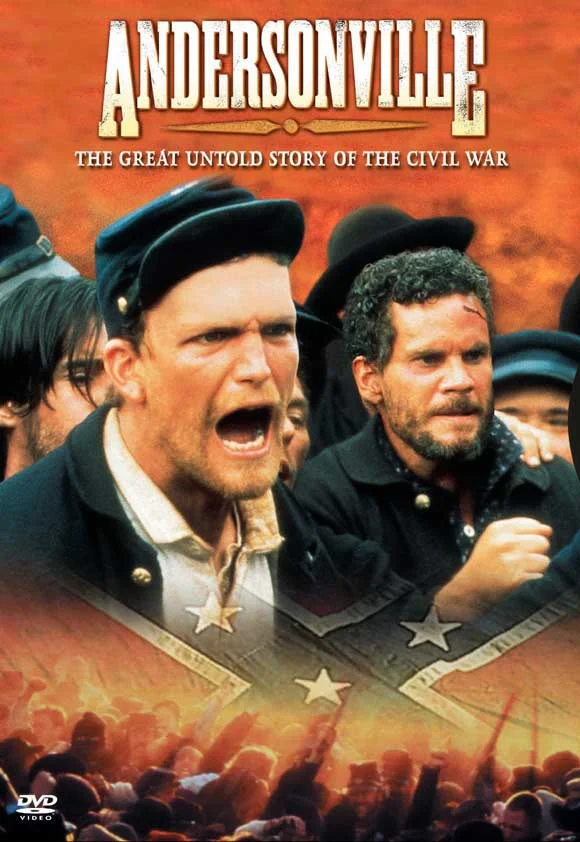 Although there were many prisoner of war (POW) camps during the U.S. Civil War, Andersonville Prison, aka Camp
Sumter, remains the most famous of them all, resembling an early Nazi concentration camp. Approximately
thirty percent of 45,000 captured Union soldiers died in captivity at Andersonville Prison, mostly due to
starvation and disease.
Although there were many prisoner of war (POW) camps during the U.S. Civil War, Andersonville Prison, aka Camp
Sumter, remains the most famous of them all, resembling an early Nazi concentration camp. Approximately
thirty percent of 45,000 captured Union soldiers died in captivity at Andersonville Prison, mostly due to
starvation and disease.
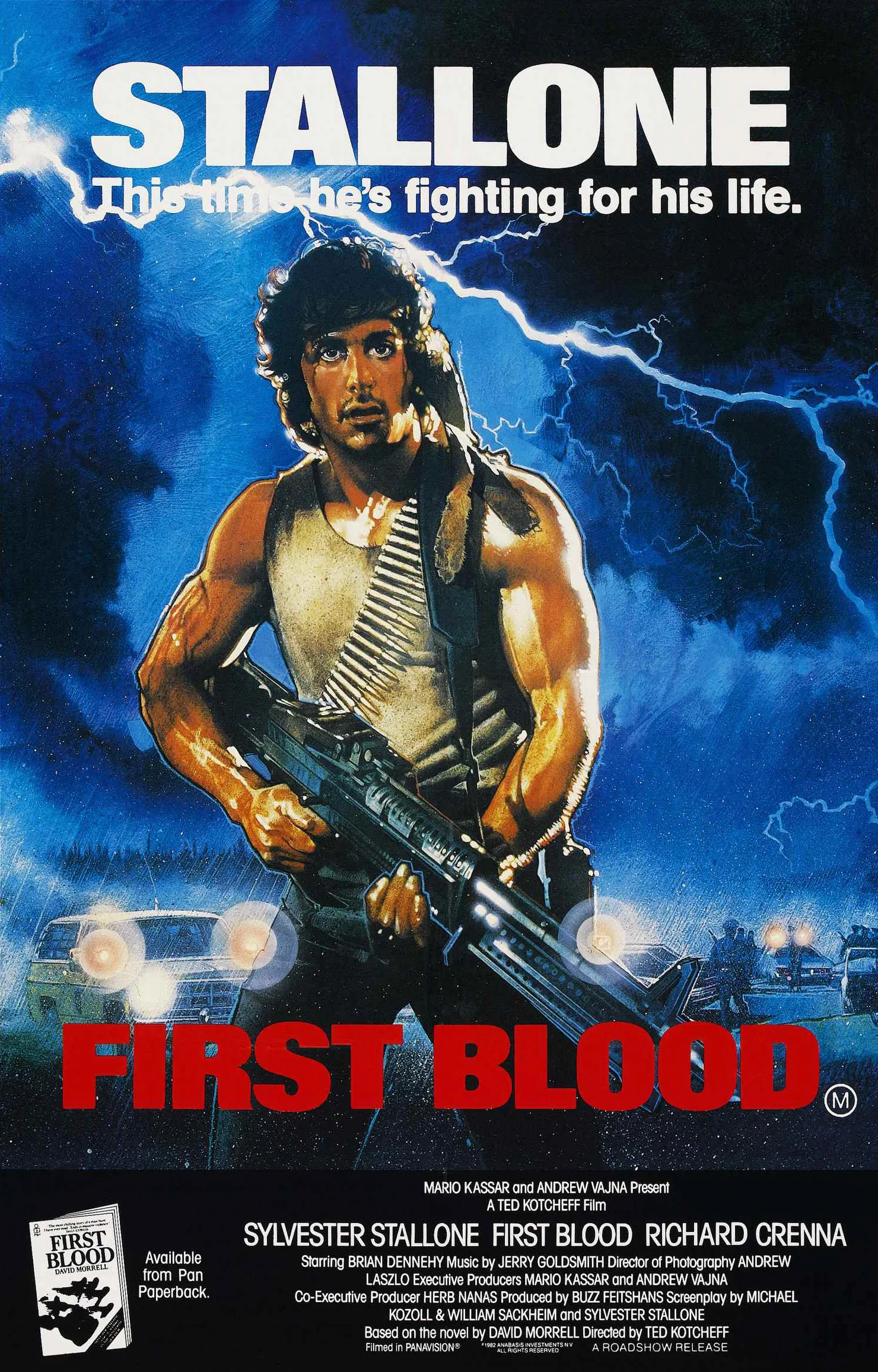 "Don't push it, or I'll give you a war you won't believe!" The uniqueness of Sylvester Stallone is captured
in First Blood, a one-man guerilla war film. Not only that, but a battle is also waged between his
character and the elements of nature. It's a good yarn of how one man's stubbornness can cost more than it's
worth sticking to.
"Don't push it, or I'll give you a war you won't believe!" The uniqueness of Sylvester Stallone is captured
in First Blood, a one-man guerilla war film. Not only that, but a battle is also waged between his
character and the elements of nature. It's a good yarn of how one man's stubbornness can cost more than it's
worth sticking to.
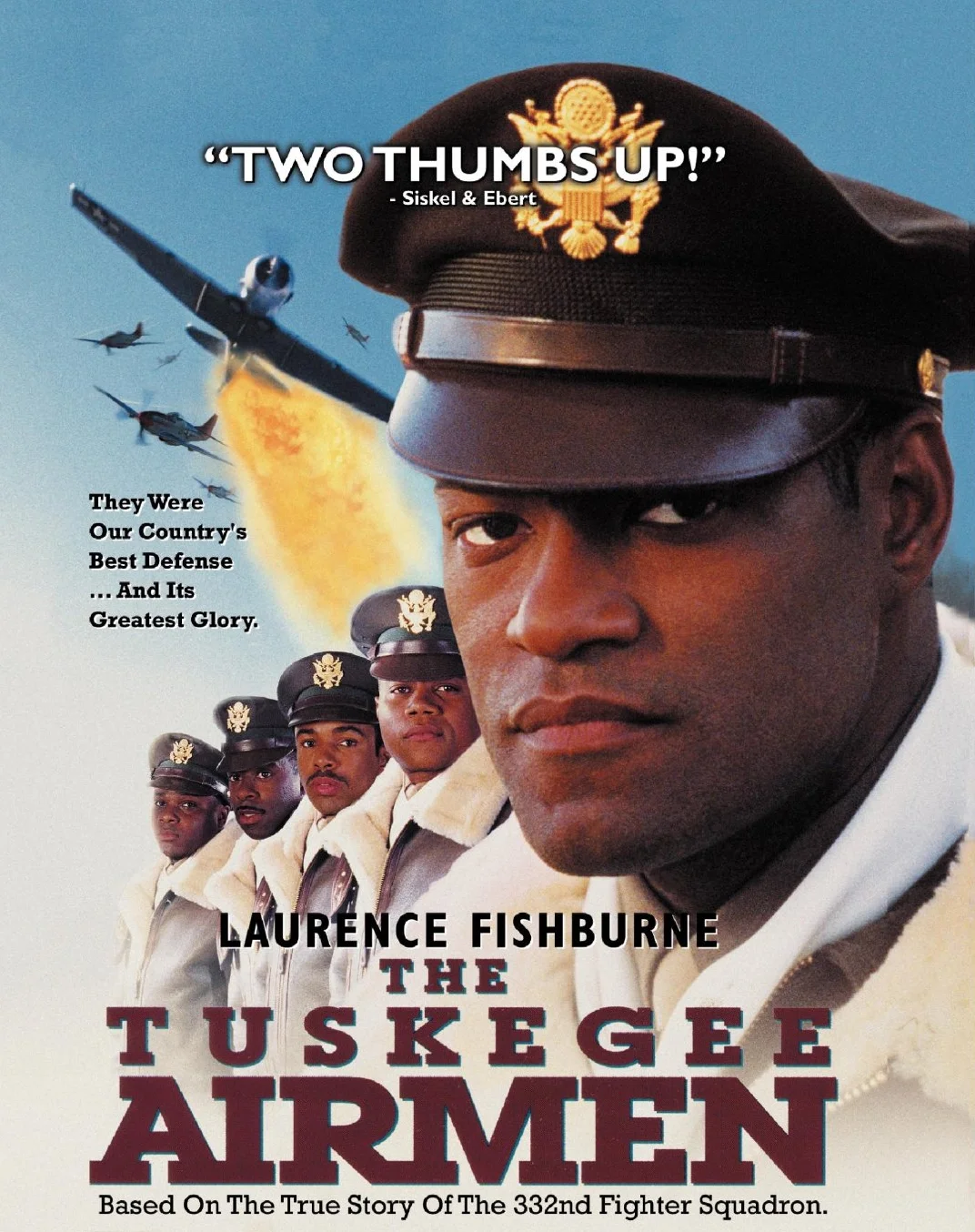 During World War II, there existed a U.S. fighter squadron of black pilots, trained in Tuskegee, Alabama, that
fought overseas and was one of the most decorated groups in military history despite the overwhelming racism
at the time. The adversity these men went through is nothing short of inspiring.
During World War II, there existed a U.S. fighter squadron of black pilots, trained in Tuskegee, Alabama, that
fought overseas and was one of the most decorated groups in military history despite the overwhelming racism
at the time. The adversity these men went through is nothing short of inspiring.
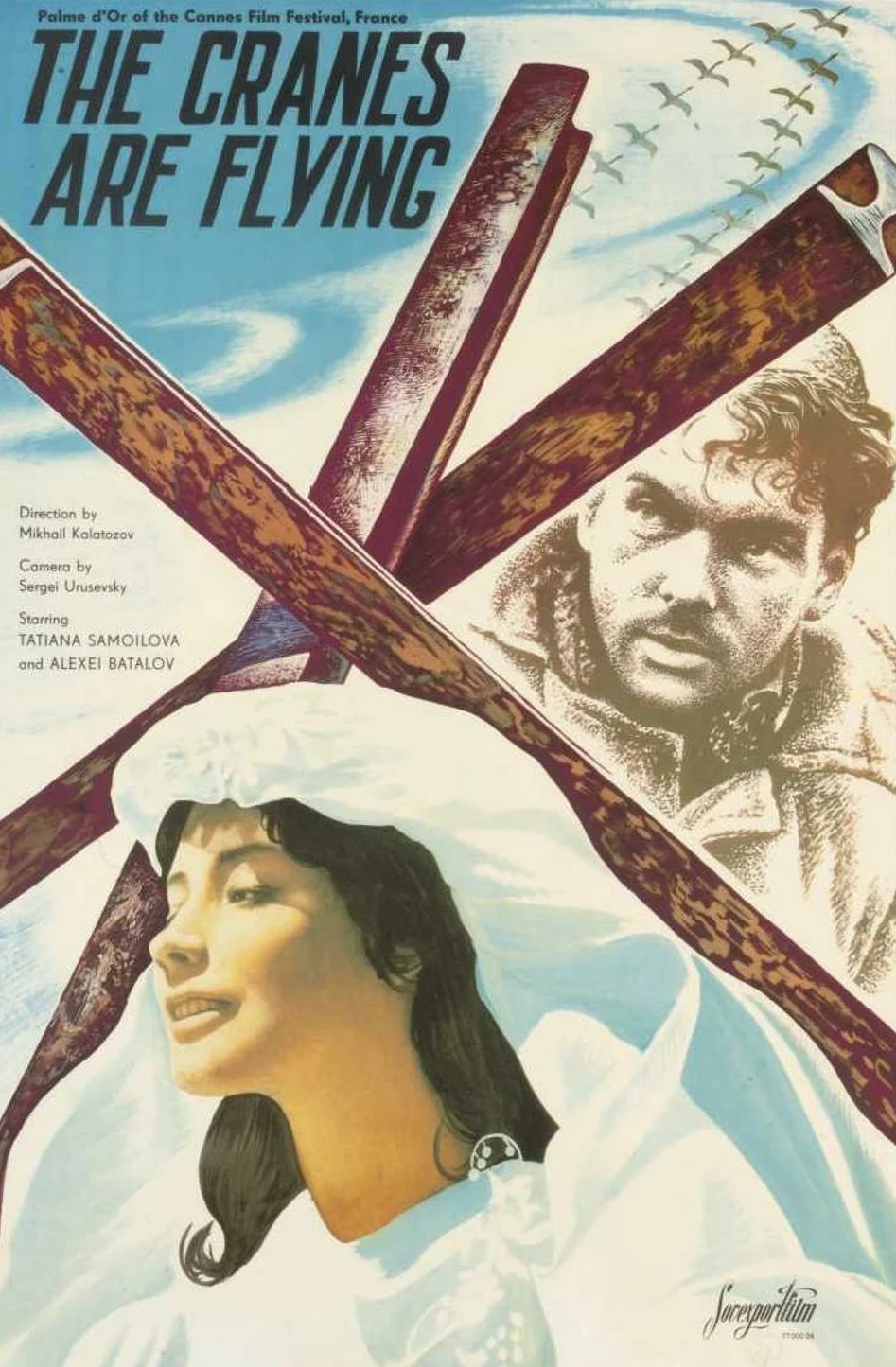 There's no doubt that Russia had its own Audrey Hepburn, and her name was Tatiana Samoilova. Her most famous
performance is given in Letyat zhuravli, otherwise known as The Cranes Are Flying. Highly romantic,
it's one of the prettiest pictures made with unique shots. Whenever Tatiana appears, she enhances the visually
striking black-and-white cinematography even more.
There's no doubt that Russia had its own Audrey Hepburn, and her name was Tatiana Samoilova. Her most famous
performance is given in Letyat zhuravli, otherwise known as The Cranes Are Flying. Highly romantic,
it's one of the prettiest pictures made with unique shots. Whenever Tatiana appears, she enhances the visually
striking black-and-white cinematography even more.
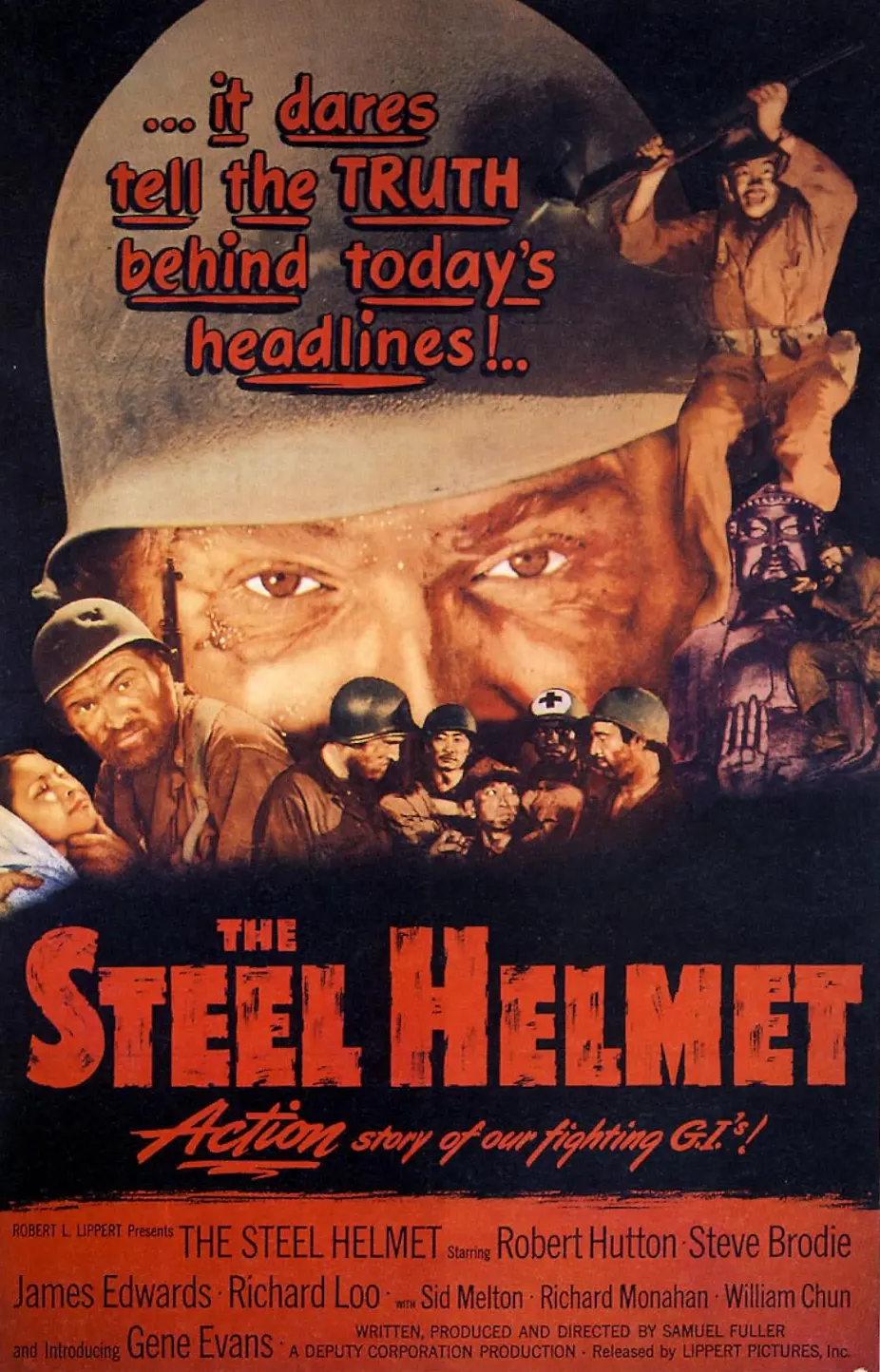 The best film Samuel Fuller ever made? Why...it has to be The Steel Helmet. Yes, Merrill's Marauders
and The Big Red One are pretty good, but this one is something else that's far ahead of its time in 1951,
featuring so many things that I don't normally see in war pictures along with a diverse cast. There's no question
that Gene Evans stole the show.
The best film Samuel Fuller ever made? Why...it has to be The Steel Helmet. Yes, Merrill's Marauders
and The Big Red One are pretty good, but this one is something else that's far ahead of its time in 1951,
featuring so many things that I don't normally see in war pictures along with a diverse cast. There's no question
that Gene Evans stole the show.
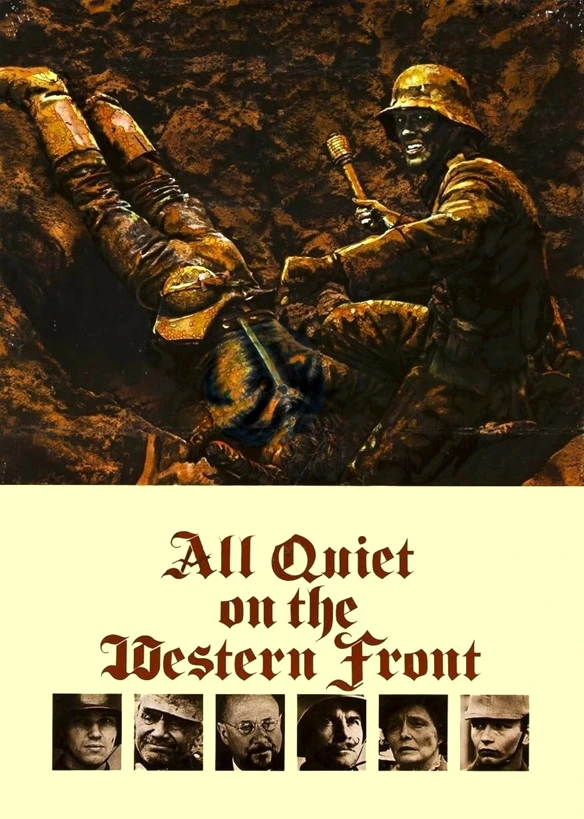 As highly as I think of the 1930's Best Picture of the Year All Quiet on the Western Front, I question
the necessity of the remake. After seeing the 1979 version, I've come to see how well-made it is, too. Granted,
the remake is not right up there with the 1930 classic of which I regard to be one of the greatest movies made,
but it has merits.
As highly as I think of the 1930's Best Picture of the Year All Quiet on the Western Front, I question
the necessity of the remake. After seeing the 1979 version, I've come to see how well-made it is, too. Granted,
the remake is not right up there with the 1930 classic of which I regard to be one of the greatest movies made,
but it has merits.
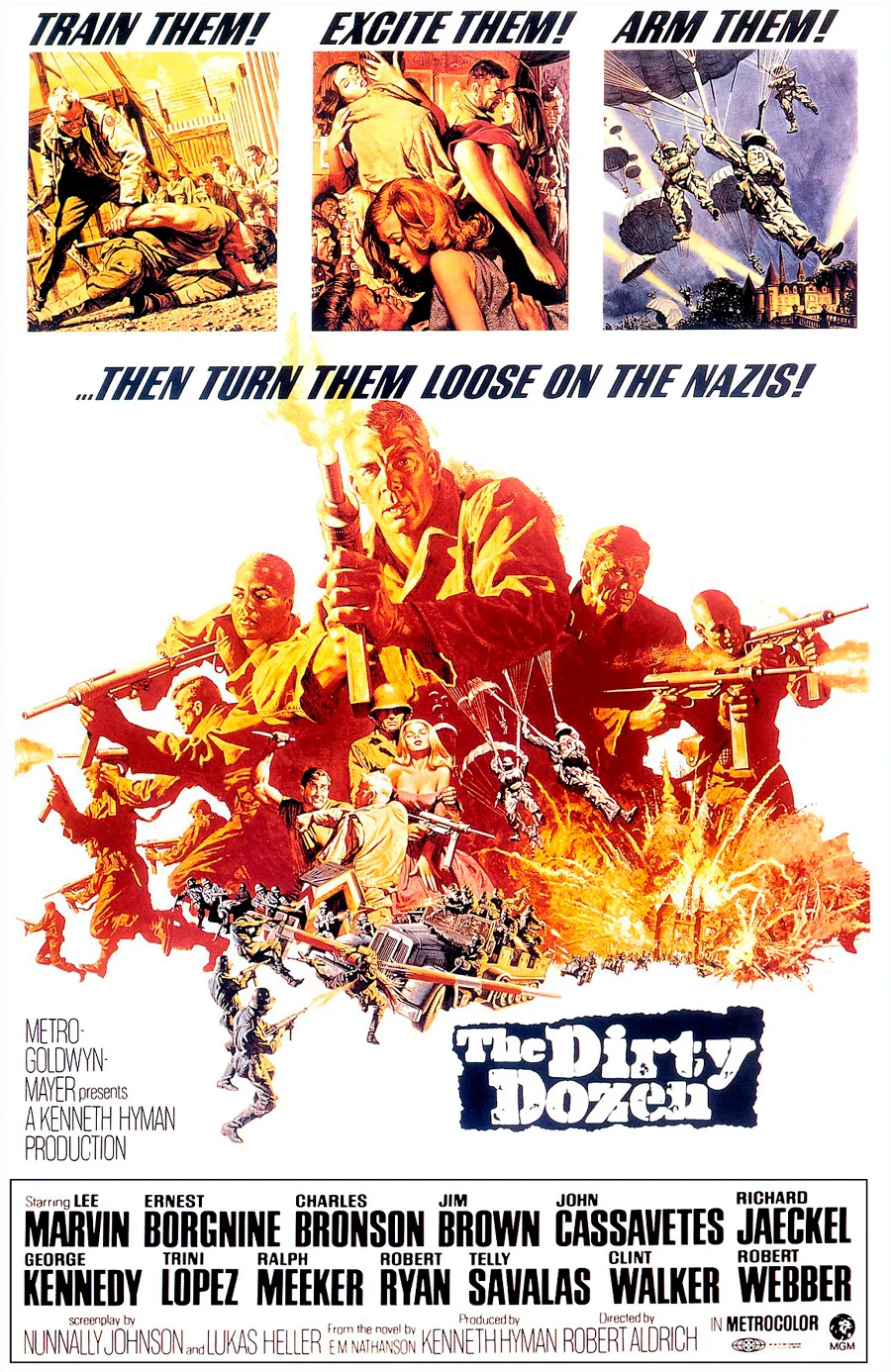 The Dirty Dozen is a well-known war picture despite the misleading title because there are actually
fourteen involved in the mission. Performance-wise, none of the actors stands out. So, it's the chemistry of
the group that makes the film watchable. Of course, having Lee Marvin on board is a bonus.
The Dirty Dozen is a well-known war picture despite the misleading title because there are actually
fourteen involved in the mission. Performance-wise, none of the actors stands out. So, it's the chemistry of
the group that makes the film watchable. Of course, having Lee Marvin on board is a bonus.
 A metaphor for the mistakes made in the Vietnam War, Southern Comfort is a finely directed Kafka-esque
picture by Walter Hill. What a great cast. The performances are terrific with a bunch of memorable characters
and an unbelievable ending. Andrew Laszlo's cinematography of the Louisiana Bayou is the clincher to create
a Deliverance-like atmosphere.
A metaphor for the mistakes made in the Vietnam War, Southern Comfort is a finely directed Kafka-esque
picture by Walter Hill. What a great cast. The performances are terrific with a bunch of memorable characters
and an unbelievable ending. Andrew Laszlo's cinematography of the Louisiana Bayou is the clincher to create
a Deliverance-like atmosphere.
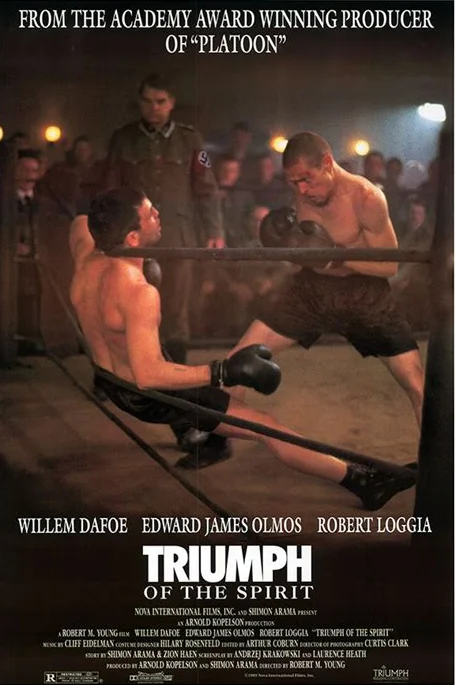 Before Schindler's List hit the silver screens, there was Triumph of the Spirit. Calling it a
Holocaust boxing picture will be a serious mistake because that's not what the movie is about. It's survival
during the Holocaust, period. Based on Jewish Greek boxer Salamo Arouch's account, he had to go through over
200 fights to survive; the loser of each match was sent to the gas chamber.
Before Schindler's List hit the silver screens, there was Triumph of the Spirit. Calling it a
Holocaust boxing picture will be a serious mistake because that's not what the movie is about. It's survival
during the Holocaust, period. Based on Jewish Greek boxer Salamo Arouch's account, he had to go through over
200 fights to survive; the loser of each match was sent to the gas chamber.
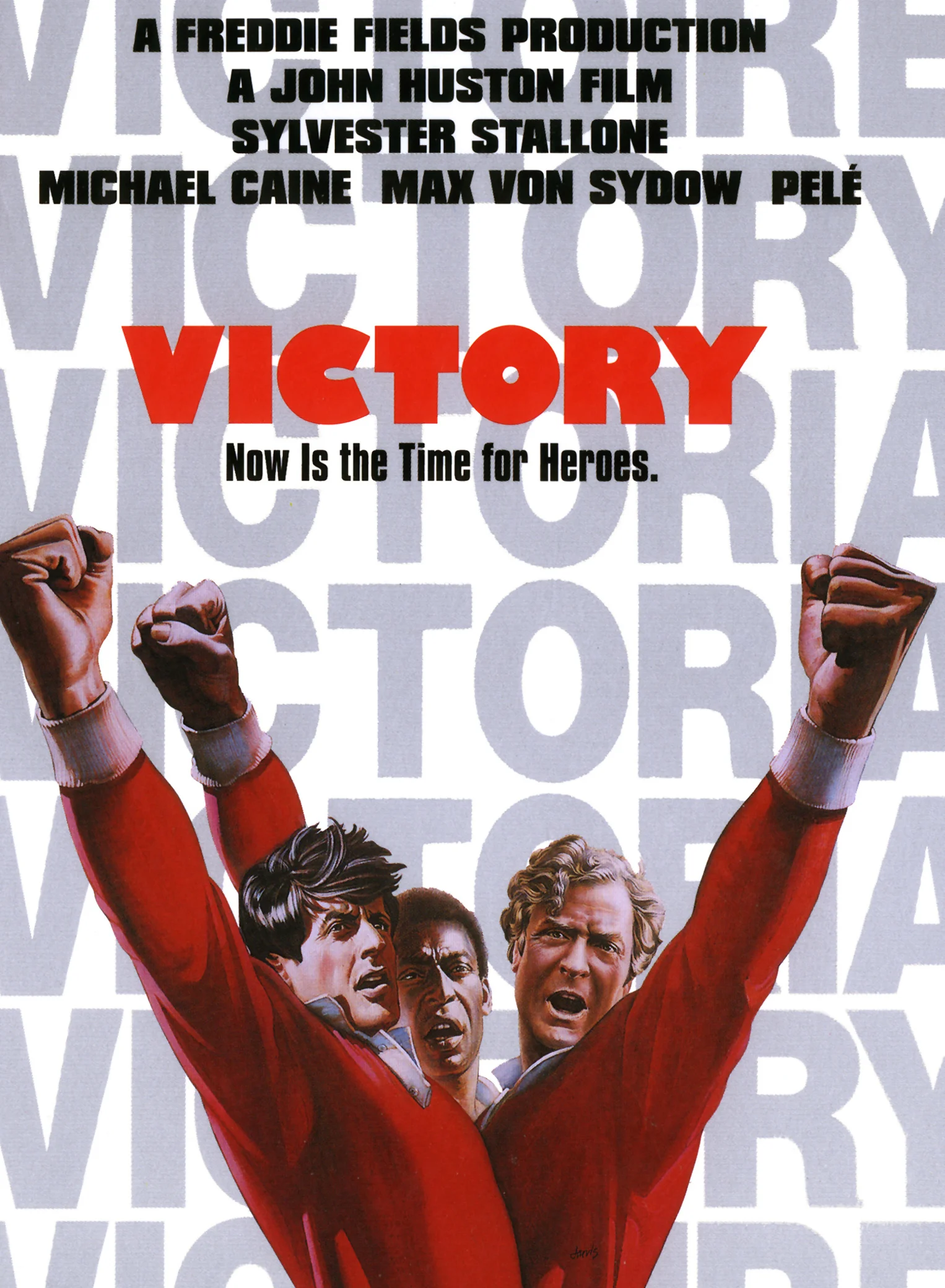 Stallone, Pelé, and other international soccer stars take on the Nazis for a game of soccer. That's one
half of it, and the other half is The Great Escape plan. The most impressive sight is Pelé doing
a bicycle kick. No matter what time of the day, Victory is an entertaining WWII soccer picture that
simply defies logic.
Stallone, Pelé, and other international soccer stars take on the Nazis for a game of soccer. That's one
half of it, and the other half is The Great Escape plan. The most impressive sight is Pelé doing
a bicycle kick. No matter what time of the day, Victory is an entertaining WWII soccer picture that
simply defies logic.
 Like The Wild Bunch and The Hunting Party, Ulzana's Raid is a brutal Western picture.
Believe it or not, the fighting between the US Army and various Apache nations in the southwest from 1849 to
1886 is the longest war ever in U.S. history which ended with the surrender of Geronimo. The brutality shown
by the Apaches did happen for real.
Like The Wild Bunch and The Hunting Party, Ulzana's Raid is a brutal Western picture.
Believe it or not, the fighting between the US Army and various Apache nations in the southwest from 1849 to
1886 is the longest war ever in U.S. history which ended with the surrender of Geronimo. The brutality shown
by the Apaches did happen for real.
 Famous for the characters and the battle between good and evil as indicated in the opening crawl, nobody can
forget Star Wars and the next two sequels. It changed everything for the sci-fi genre which hasn't
been topped since then. The second part is unique for allowing the bad side to win and not really having a
concrete ending.
Famous for the characters and the battle between good and evil as indicated in the opening crawl, nobody can
forget Star Wars and the next two sequels. It changed everything for the sci-fi genre which hasn't
been topped since then. The second part is unique for allowing the bad side to win and not really having a
concrete ending.
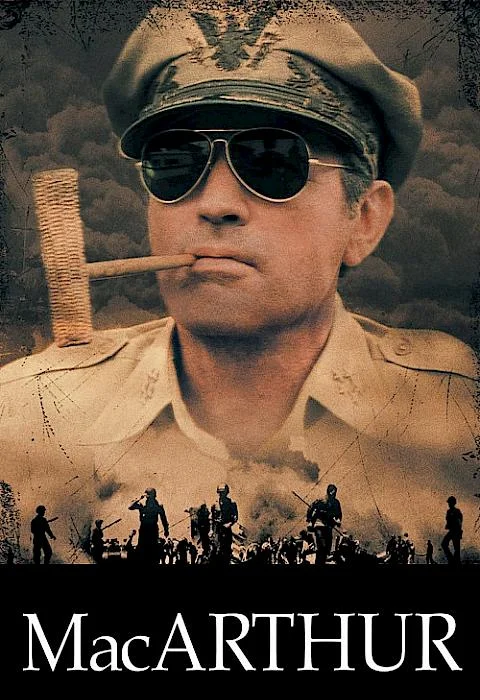 For MacArthur, Gregory Peck does what George C. Scott did for Patton. In fact, it's handled by
the same production team. A forgotten but very controversial military figure, General Douglas MacArthur was
among a handful of famous generals during the 20th century. It was obvious from the outset only Gregory Peck
could play him. Not only he gets the job done, but he is MacArthur. Peck can even carry a corncob pipe
convincingly well.
For MacArthur, Gregory Peck does what George C. Scott did for Patton. In fact, it's handled by
the same production team. A forgotten but very controversial military figure, General Douglas MacArthur was
among a handful of famous generals during the 20th century. It was obvious from the outset only Gregory Peck
could play him. Not only he gets the job done, but he is MacArthur. Peck can even carry a corncob pipe
convincingly well.
 Son of the Morning Star is a dramatic improvement over Custer of the West by getting nearly
everything correct. Not only that, the story is told from two points of view: Custer's wife and a Cheyenne
woman named Kate Bighead aka Antelope. Dances With Wolves' Rodney E. Grant appears as Crazy Horse along
with other authentic Indians which are 150 in all. The film was shot on location in Badlands
National Park and Buffalo Gap, South Dakota.
Son of the Morning Star is a dramatic improvement over Custer of the West by getting nearly
everything correct. Not only that, the story is told from two points of view: Custer's wife and a Cheyenne
woman named Kate Bighead aka Antelope. Dances With Wolves' Rodney E. Grant appears as Crazy Horse along
with other authentic Indians which are 150 in all. The film was shot on location in Badlands
National Park and Buffalo Gap, South Dakota.
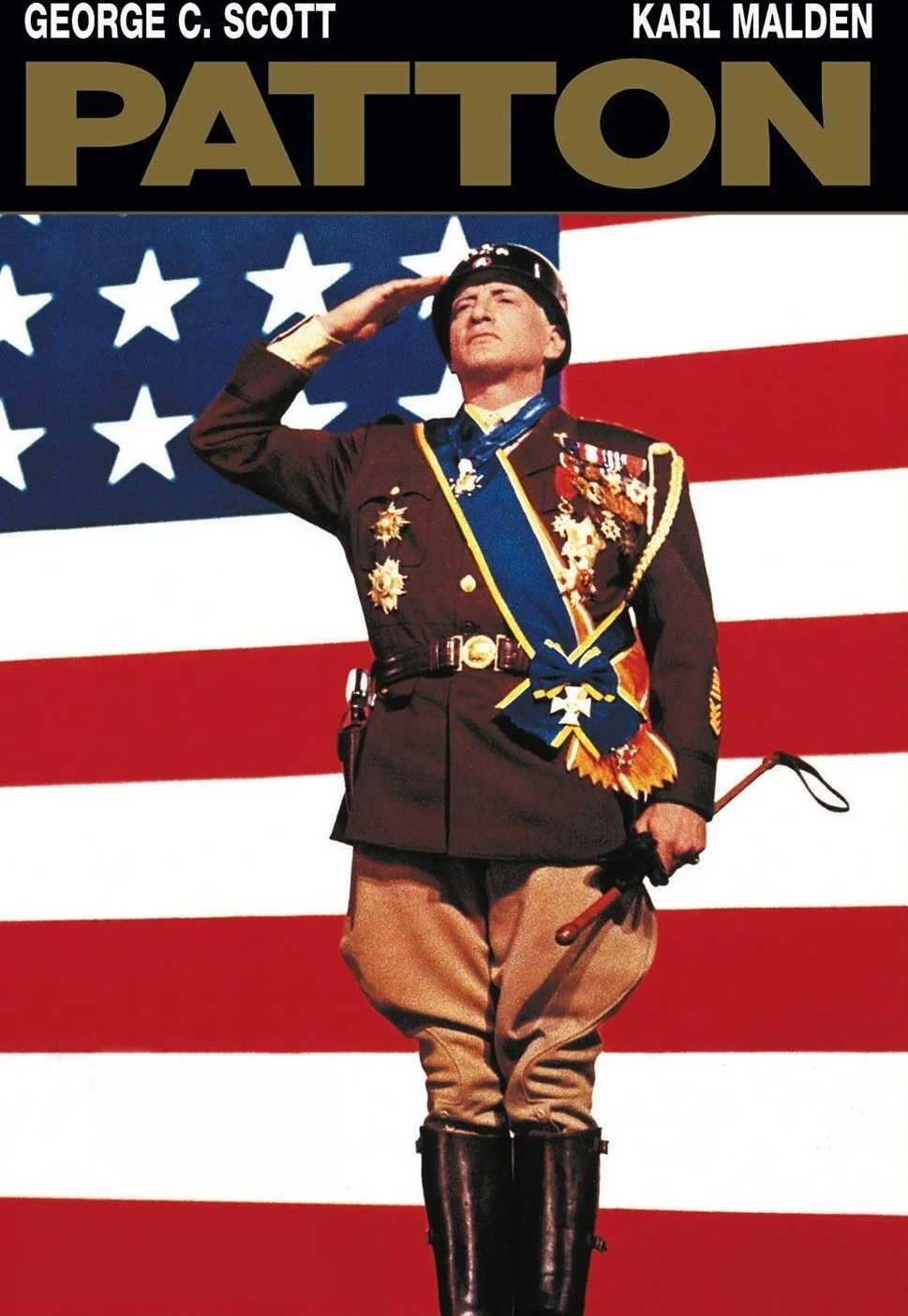 Any biographic sketch of an important yet flawed character is always interesting. And that's the case with
General George S. Patton, the enigmatic gung-ho commander of the United States Seventh Army in the Mediterranean
and European theaters of World War II. It's George C. Scott, winning and then refusing the Oscar for his
performance, who shines the most and proves why he was a remarkable actor of his generation. Be sure to
check out The Last Days of Patton as well.
Any biographic sketch of an important yet flawed character is always interesting. And that's the case with
General George S. Patton, the enigmatic gung-ho commander of the United States Seventh Army in the Mediterranean
and European theaters of World War II. It's George C. Scott, winning and then refusing the Oscar for his
performance, who shines the most and proves why he was a remarkable actor of his generation. Be sure to
check out The Last Days of Patton as well.
 If you want to be entertained, then by all means go for Where Eagles Dare, the
Mission: Impossible of impossible missions. There are many twists, turns, and surprises that the action
never lets down all the way to the end for 155 minutes. Although none of the characters is explored in depth,
the focal point is rather the plan with everybody in position to be ready and it then simply explodes.
If you want to be entertained, then by all means go for Where Eagles Dare, the
Mission: Impossible of impossible missions. There are many twists, turns, and surprises that the action
never lets down all the way to the end for 155 minutes. Although none of the characters is explored in depth,
the focal point is rather the plan with everybody in position to be ready and it then simply explodes.
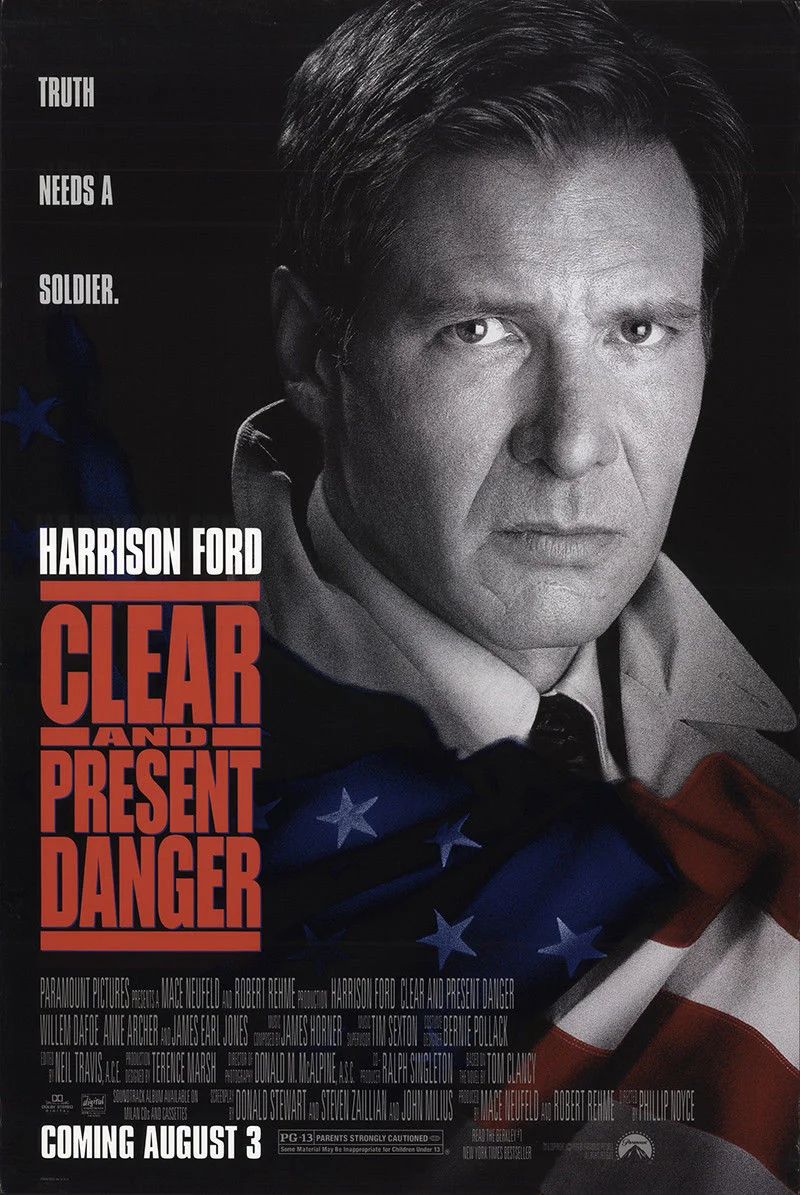 Clear and Present Danger is by far the best film of the Jack Ryan franchise. The story is so good with
different kinds of villains, and the acting, especially by Harrison Ford, Joaquim de Almeida, Miguel Sandoval,
Henry "Boom" Czerny, Harris Yulin, and Donald Moffat, is terrific. Speaking of villains, there are not one, two,
or three but many of them. Not only are they from the bad side, but they're also from the good side.
Clear and Present Danger is by far the best film of the Jack Ryan franchise. The story is so good with
different kinds of villains, and the acting, especially by Harrison Ford, Joaquim de Almeida, Miguel Sandoval,
Henry "Boom" Czerny, Harris Yulin, and Donald Moffat, is terrific. Speaking of villains, there are not one, two,
or three but many of them. Not only are they from the bad side, but they're also from the good side.
 A lot of people tend to think Rutger Hauer started in the early 80's because of Nighthawks and
Blade Runner, but he was doing a lot of work throughout the 70's in his native country. The result is
Turks fruit and Soldaat van Oranje that were voted among the best Dutch pictures made according
to the Netherlands Film Festival at the end of the century. It's a good WWII story about spies, counterspies,
and traitors among three countries: Holland, Germany, and England.
A lot of people tend to think Rutger Hauer started in the early 80's because of Nighthawks and
Blade Runner, but he was doing a lot of work throughout the 70's in his native country. The result is
Turks fruit and Soldaat van Oranje that were voted among the best Dutch pictures made according
to the Netherlands Film Festival at the end of the century. It's a good WWII story about spies, counterspies,
and traitors among three countries: Holland, Germany, and England.
 Casualties of War, which is based on a true incident, is a compelling war drama picture that seems to be
another about the Vietnam War but has something unique to present: the kidnap, gang rape, and murder of a young
Vietnamese woman by four U.S. Army soldiers. It was shot on location in Thailand, and the bridge where the girl
was murdered is part of the same rail transportation system that was used in The Bridge on the River Kwai.
Casualties of War, which is based on a true incident, is a compelling war drama picture that seems to be
another about the Vietnam War but has something unique to present: the kidnap, gang rape, and murder of a young
Vietnamese woman by four U.S. Army soldiers. It was shot on location in Thailand, and the bridge where the girl
was murdered is part of the same rail transportation system that was used in The Bridge on the River Kwai.
 Pretty much everybody has never heard of Manfred von Richthofen, but they can be certain of recognizing his über
famous nickname: Red Baron. When I thought The Blue Max had the best aerial WWI photography,
Von Richthofen and Brown goes on to beat the pants off it. What a spectacular display of vintage
single-seat fighter aircrafts. The colors are stunning with plenty of authenticity, especially on the German
side, and the location shots are a plus.
Pretty much everybody has never heard of Manfred von Richthofen, but they can be certain of recognizing his über
famous nickname: Red Baron. When I thought The Blue Max had the best aerial WWI photography,
Von Richthofen and Brown goes on to beat the pants off it. What a spectacular display of vintage
single-seat fighter aircrafts. The colors are stunning with plenty of authenticity, especially on the German
side, and the location shots are a plus.
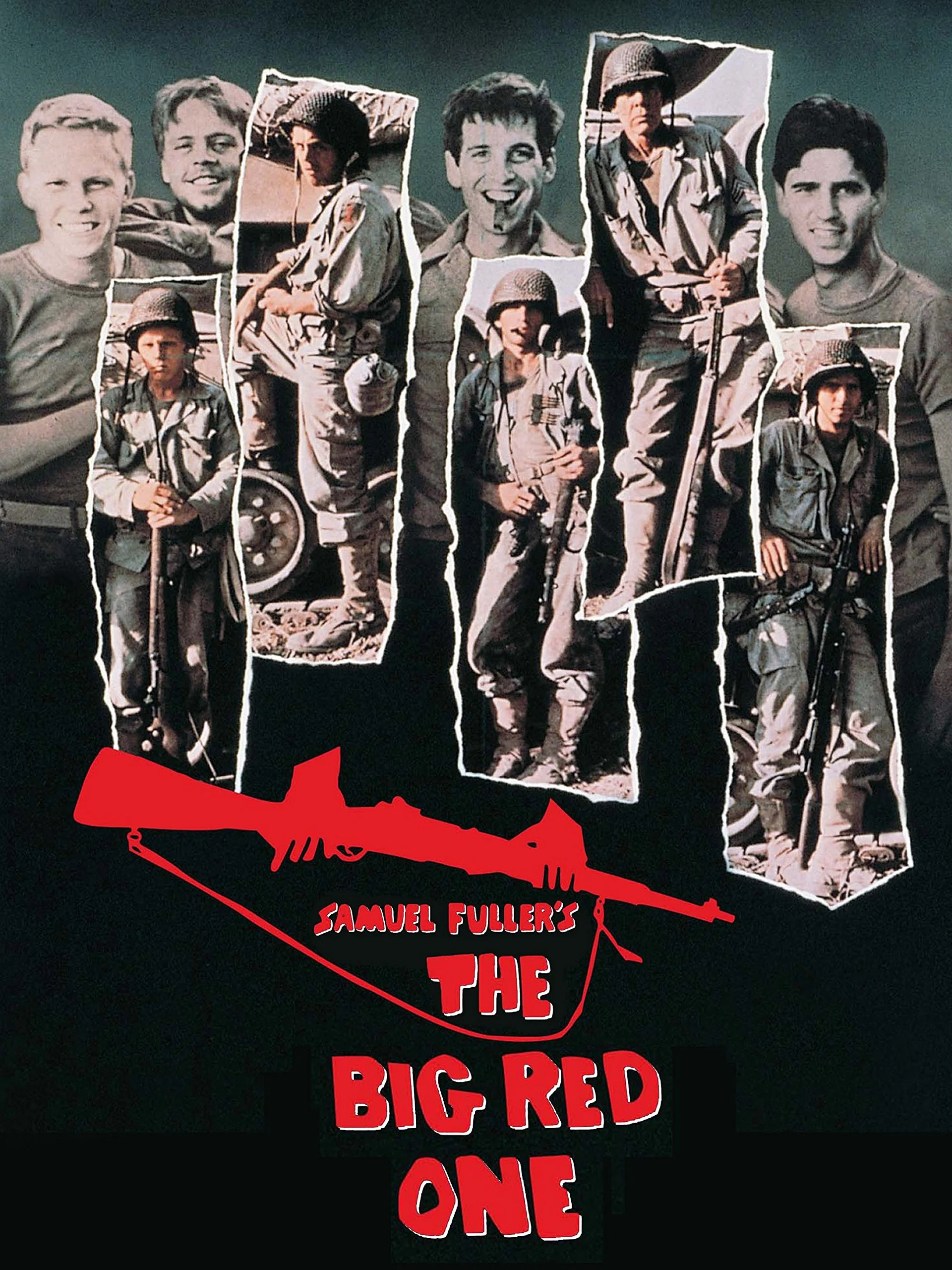 The Big Red One is my favorite Lee Marvin picture. This is the one that makes the most of his potential,
militarywise or actingwise. A poetic war film, the cinematography is terrific. The adventure tour of World War
II through many European countries is marvelous that's reminiscent of Saving Private Ryan but with less
grittiness. The best part is Lee Marvin carrying a young Holocaust victim. It's the final fitting
image that does his acting career justice.
The Big Red One is my favorite Lee Marvin picture. This is the one that makes the most of his potential,
militarywise or actingwise. A poetic war film, the cinematography is terrific. The adventure tour of World War
II through many European countries is marvelous that's reminiscent of Saving Private Ryan but with less
grittiness. The best part is Lee Marvin carrying a young Holocaust victim. It's the final fitting
image that does his acting career justice.
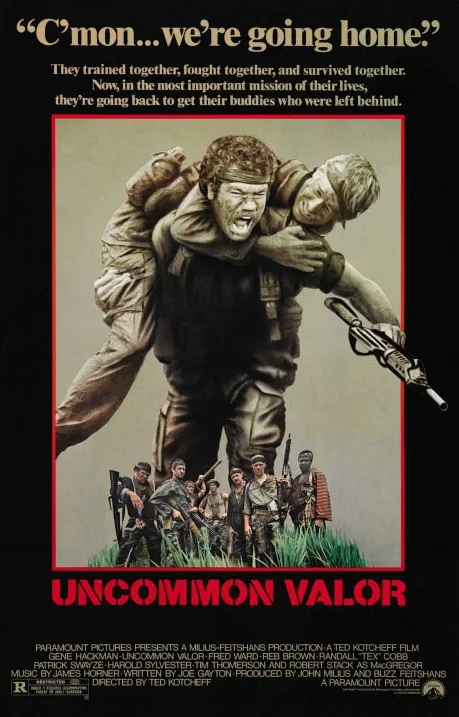 Before there was Rambo: First Blood Part II, there was Uncommon Valor. The story is essentially
the same. Instead of Rambo, it's Gene Hackman who leads his own Dirty Dozen team to rescue Vietnam
P.O.W.s. Gene Hackman is the man and has a great moment by reciting a paraphrased line from Julius Caesar.
That's when I knew he took interest in the script from the get-go.
Before there was Rambo: First Blood Part II, there was Uncommon Valor. The story is essentially
the same. Instead of Rambo, it's Gene Hackman who leads his own Dirty Dozen team to rescue Vietnam
P.O.W.s. Gene Hackman is the man and has a great moment by reciting a paraphrased line from Julius Caesar.
That's when I knew he took interest in the script from the get-go.
 I thought there would be endless comparisons between The Enemy Below and Run Silent, Run Deep, but
both are good movies in their own way. It helps to have the immense star power of Clark Gable and Burt Lancaster
on board. Otherwise, the bland cast, save for Jack Warden, was going to doom the film. Many said Clark Gable
was too old to play the role of Commander P.J. Richardson, but he's honestly great, being the biggest reason
why the film worked. Burt Lancaster just helped out.
I thought there would be endless comparisons between The Enemy Below and Run Silent, Run Deep, but
both are good movies in their own way. It helps to have the immense star power of Clark Gable and Burt Lancaster
on board. Otherwise, the bland cast, save for Jack Warden, was going to doom the film. Many said Clark Gable
was too old to play the role of Commander P.J. Richardson, but he's honestly great, being the biggest reason
why the film worked. Burt Lancaster just helped out.
 Before there was Breaker Morant and before there was A Few Good Men, there was
Man in the Middle. Robert Mitchum gives his usual intelligent portrayal of a military man he's always
been underrated for. Keenan Wynn does his best imitation of "I'm really that nutso" guilty suspect. But it's
Trevor Howard who steals the picture with his quiet straightforward display of strong British acting. That's
when the theme started to work with its presentation of insanity defense.
Before there was Breaker Morant and before there was A Few Good Men, there was
Man in the Middle. Robert Mitchum gives his usual intelligent portrayal of a military man he's always
been underrated for. Keenan Wynn does his best imitation of "I'm really that nutso" guilty suspect. But it's
Trevor Howard who steals the picture with his quiet straightforward display of strong British acting. That's
when the theme started to work with its presentation of insanity defense.
 Von Ryan's Express isn't bad. It has a beginning, a middle, and an end. The story is fully developed.
Not much is faked with the exception of people being killed through gunfire. Many scenes were shot on location
in Italy. To appreciate the most are the characters of different nationalities speaking their own language
which is unusual for a major Hollywood picture.
Von Ryan's Express isn't bad. It has a beginning, a middle, and an end. The story is fully developed.
Not much is faked with the exception of people being killed through gunfire. Many scenes were shot on location
in Italy. To appreciate the most are the characters of different nationalities speaking their own language
which is unusual for a major Hollywood picture.
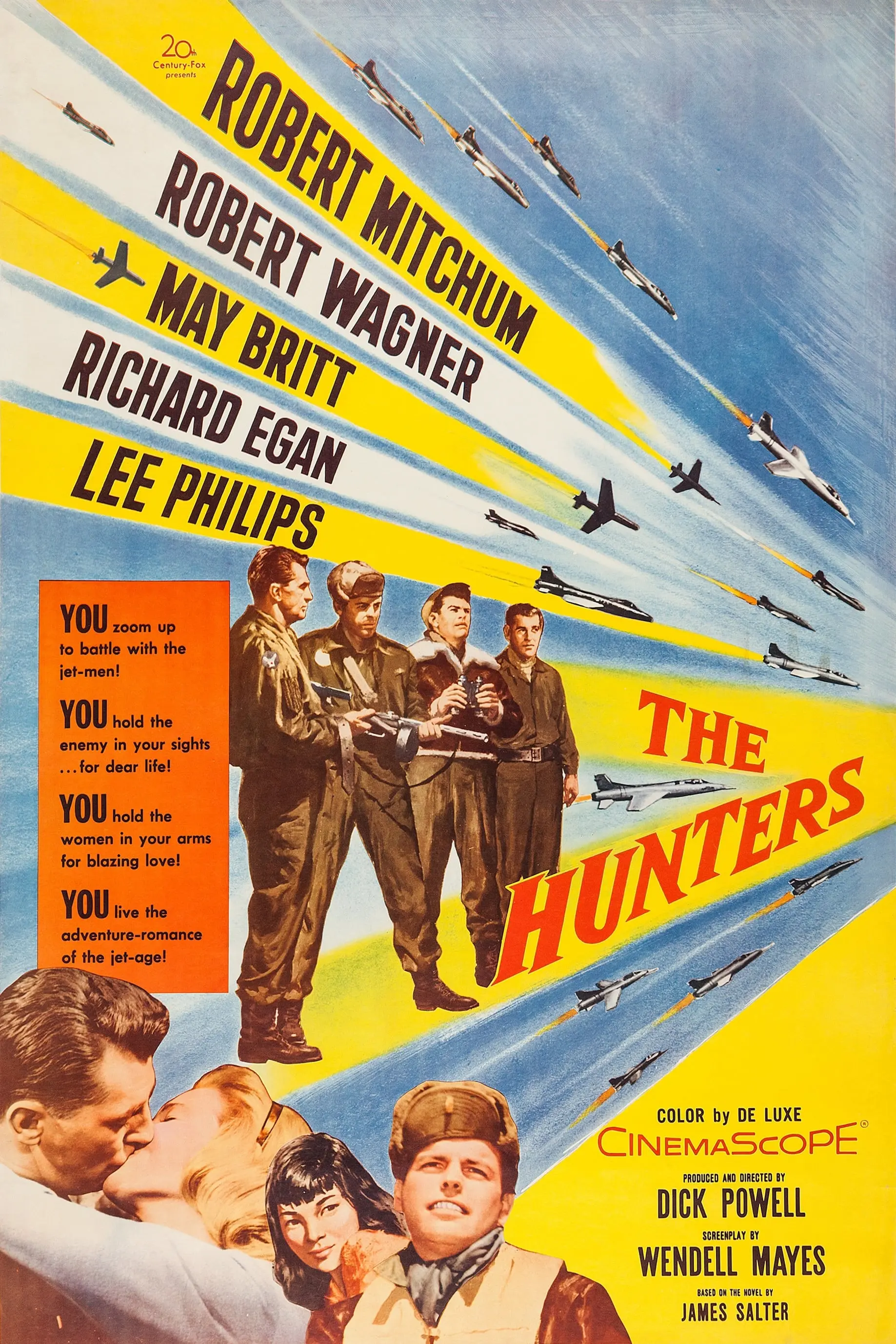 After the critical success of The Enemy Below, Dick Powell and Robert Mitchum decided to do another
military picture, and this time, it's called The Hunters. This is Top Gun before there was
Top Gun almost three decades later. Remember that The Blue Max hadn't come around yet. The use
of Air Force jets and its counterparts is certainly nice which includes a video footage of one actually crash
landing on the runway.
After the critical success of The Enemy Below, Dick Powell and Robert Mitchum decided to do another
military picture, and this time, it's called The Hunters. This is Top Gun before there was
Top Gun almost three decades later. Remember that The Blue Max hadn't come around yet. The use
of Air Force jets and its counterparts is certainly nice which includes a video footage of one actually crash
landing on the runway.
 The most salient aspect of Red Dawn is the lack of restraint given the somewhat all-star cast.
As a matter of fact, no character is made to be the central focus. Rather, the movie is about guerrilla tactics
and people's willingness to survive in a potential war with the Communists. A few things to love are the quick,
dramatic opening scene of the Communist paratroopers, the grave situation sinking in everybody's head, and
the moment when a Wolverine was labeled a traitor and got summarily dealt with.
The most salient aspect of Red Dawn is the lack of restraint given the somewhat all-star cast.
As a matter of fact, no character is made to be the central focus. Rather, the movie is about guerrilla tactics
and people's willingness to survive in a potential war with the Communists. A few things to love are the quick,
dramatic opening scene of the Communist paratroopers, the grave situation sinking in everybody's head, and
the moment when a Wolverine was labeled a traitor and got summarily dealt with.
 One of the most underrated performances of Gregory Peck's career is given in The Purple Plain. Geoffrey
Unsworth's Technicolor photography does him huge favors, and his face has never looked so flawless.
What's particularly nice is the supporting cast that's made up of real Asians. A case in point is Win Min Than who
plays Gregory Peck's love interest Anna. Brenda de Banzie can't be discounted for her fine acting job as Miss McNab.
One of the most underrated performances of Gregory Peck's career is given in The Purple Plain. Geoffrey
Unsworth's Technicolor photography does him huge favors, and his face has never looked so flawless.
What's particularly nice is the supporting cast that's made up of real Asians. A case in point is Win Min Than who
plays Gregory Peck's love interest Anna. Brenda de Banzie can't be discounted for her fine acting job as Miss McNab.
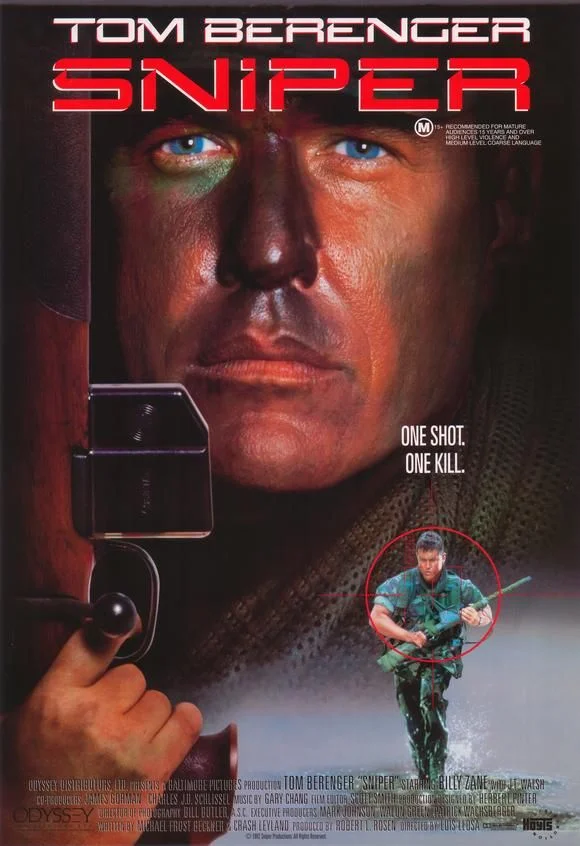 Here's an exciting Tom Berenger film: Sniper. His expertise is perfect; Tom Berenger is a veteran actor
and knows what the hell he's doing. A great deal of attention is paid to the accuracy of details and what
it's like to be a sniper in the jungle. Nothing is more true than the line "One shot, one kill, no exceptions."
Here's an exciting Tom Berenger film: Sniper. His expertise is perfect; Tom Berenger is a veteran actor
and knows what the hell he's doing. A great deal of attention is paid to the accuracy of details and what
it's like to be a sniper in the jungle. Nothing is more true than the line "One shot, one kill, no exceptions."
 Hell's Angels is a notable film for two reasons: Howard Hughes directed it and the major screen debut
of Jean Harlow. Despite showing some trappings of silent cinema, it's a timeless movie. Because of the aerial
scenes in the final forty-five minutes of which four people died for real, the Oscar nomination for Best
Cinematography is richly deserved. The story is unique with a love quadrangle, and the lines are shocking to
hear for 1930 with some profanities and instances of taking the Lord's name in vain.
Hell's Angels is a notable film for two reasons: Howard Hughes directed it and the major screen debut
of Jean Harlow. Despite showing some trappings of silent cinema, it's a timeless movie. Because of the aerial
scenes in the final forty-five minutes of which four people died for real, the Oscar nomination for Best
Cinematography is richly deserved. The story is unique with a love quadrangle, and the lines are shocking to
hear for 1930 with some profanities and instances of taking the Lord's name in vain.
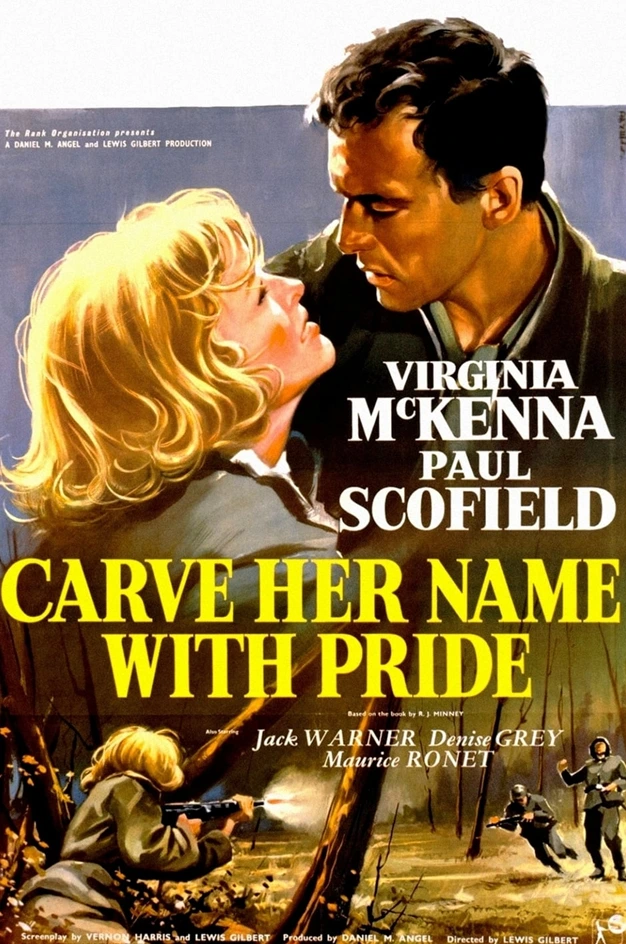 The story is based on a British spy named Violette Szabo. She could speak both English and French fluently, shoot
a rifle, and play sports. After being trained as a spy, she performed two missions but, because of her sprained
ankle, got caught by the Germans and was tortured and executed at age 23. To this day, Tania, who's without family,
is still alive, having sold her mother's medals a decade ago, and they're currently on display at the Imperial
War Museum in London, England.
The story is based on a British spy named Violette Szabo. She could speak both English and French fluently, shoot
a rifle, and play sports. After being trained as a spy, she performed two missions but, because of her sprained
ankle, got caught by the Germans and was tortured and executed at age 23. To this day, Tania, who's without family,
is still alive, having sold her mother's medals a decade ago, and they're currently on display at the Imperial
War Museum in London, England.
 Before there was Memphis Belle, there was The War Lover. It's an exciting film with a great deal
of intensity. Steve McQueen's Buzz Rickson is to Tom Berenger's Sergeant Barnes as Robert Wagner's Ed Bolland
is to Willem Dafoe's Sergeant Elias. The fierce rivalry between them is captivating, being easily the best part
of the film.
Before there was Memphis Belle, there was The War Lover. It's an exciting film with a great deal
of intensity. Steve McQueen's Buzz Rickson is to Tom Berenger's Sergeant Barnes as Robert Wagner's Ed Bolland
is to Willem Dafoe's Sergeant Elias. The fierce rivalry between them is captivating, being easily the best part
of the film.
 Some parts of Go Tell the Spartans, which are the typical army fuck-ups, are amusing to watch. It's a more
honest portrayal of the Vietnam War than, say, The Green Berets that's reminiscent of Beach Red.
Remember the setting takes place in the early (the first five years from 1959 to 1964), not middle or final,
stage of the war. Many vets have attested to the film's accurate portrayal of what was going on at the time.
Some parts of Go Tell the Spartans, which are the typical army fuck-ups, are amusing to watch. It's a more
honest portrayal of the Vietnam War than, say, The Green Berets that's reminiscent of Beach Red.
Remember the setting takes place in the early (the first five years from 1959 to 1964), not middle or final,
stage of the war. Many vets have attested to the film's accurate portrayal of what was going on at the time.
 The goal was to create an invasion route into North Germany by taking over nine bridges in Netherlands, which was
controlled by the Nazis, with the U.S. and British airborne forces (Market) and crossing these bridges with the
British land forces (Garden). The trouble? In spite of sending approximately 41,000 soldiers to there, the Nazis
had a strength of 100,000 which was overwhelmingly enough to deflect the surprise attack.
The goal was to create an invasion route into North Germany by taking over nine bridges in Netherlands, which was
controlled by the Nazis, with the U.S. and British airborne forces (Market) and crossing these bridges with the
British land forces (Garden). The trouble? In spite of sending approximately 41,000 soldiers to there, the Nazis
had a strength of 100,000 which was overwhelmingly enough to deflect the surprise attack.
 It's impossible to miss Steve McQueen in Hell Is for Heroes. It starts off awkwardly, but as soon as he
appears, things change for the better. Steve McQueen brings credibility to the table by virtue of his method
acting. The ending, which is The Great Escape-like, puts the final stamp on it as a good war picture.
It's impossible to miss Steve McQueen in Hell Is for Heroes. It starts off awkwardly, but as soon as he
appears, things change for the better. Steve McQueen brings credibility to the table by virtue of his method
acting. The ending, which is The Great Escape-like, puts the final stamp on it as a good war picture.